
laurensia.saraswati
Thoughts Left Unspoken
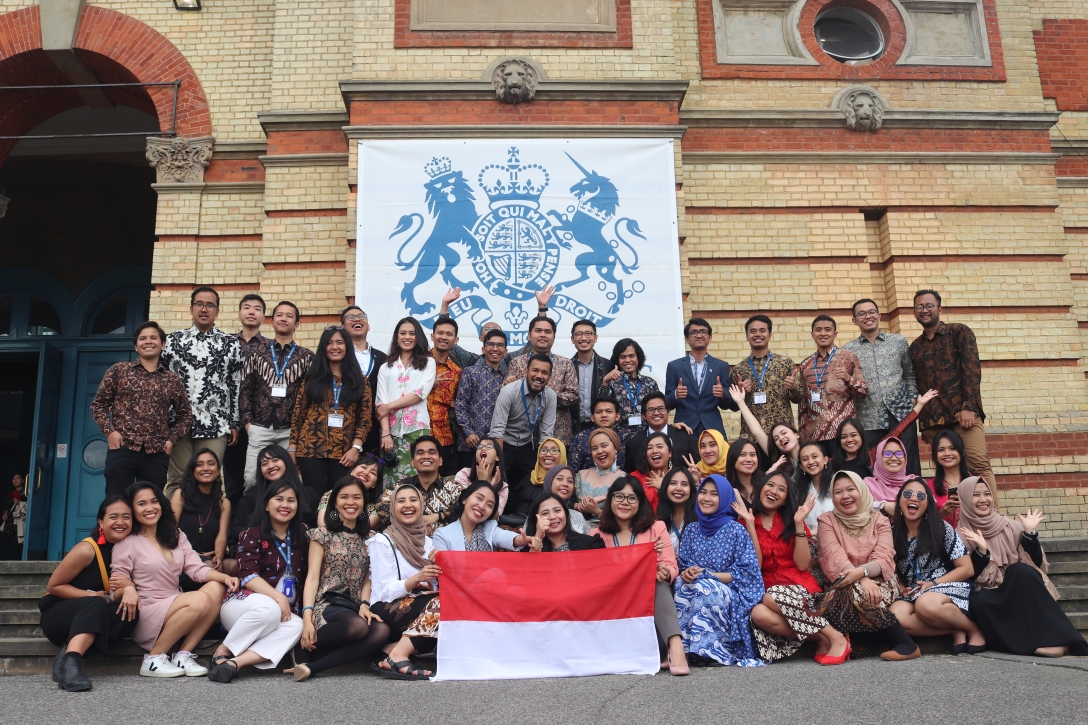

Writing Chevening Essay: Breakdown Those 4 Questions
Writing an essay for Chevening scholarship was not an easy task. But surely, we need to invest our time to write, revise and polish it. The whole writing process took me 1.5 months, but let’s not use this as a standard as anyone can have different situations.
In this post, I’m going to breakdown each question and share how I answered my Chevening essay. It is surely not the perfect one, but I’d like to share what I think essential when answering those four questions. I also did a mentoring program for Chevening applicants 19/20 and some of my mentees were accepted! Having said that, I’m sure there are some of my tips that you can use.
Disclaimer. This post does not reflect on the Chevening Foreign and Commonwealth Office (FCO) and its partner organisations. This story is just my experience and personal thoughts working on Chevening’s essay.
Without further ado, let’s go through each question.

Leadership and Influence
One of the common thoughts that most applicants have about leadership is the position; the title. I would say, no. The title is a legitimation that you have the power to lead, but beyond that, I think the most important thing that Chevening really look is the impact of your leadership. They are also looking for a potential leader. So, it does not matter if you don’t have a Manager, Head, Leader, etc in your resume as long as you can showcase your influencing and leadership skills by giving examples.
Before start writing, think about what leadership accomplishments that you had. List all down and select two to three examples that gave great impact and made you learn the most. Each question only allows 500 words hence we really need to be careful to choose which experience to be put in the essay. If you can, try to put examples in different cases and environment to show that you have a range of leadership experiences.
As I already mentioned in the previous post about general tips for writing Chevening essay, it is important to give an introduction. Although this is just a suggestion, if you’re unsure where to start, you can try with what you believe about leadership or a brief about what kind of leader you think you are. After that, you can link to your leadership experiences, supporting your statement about the leadership that you write in the introduction. Build an engaging introduction is also crucial to make the panel stay reading your story. Remember, they read thousands of essays, at least you want to keep them engaged with your essay.
In my case, my first sentence in the intro was: I believe that the leaders are not born, but made through a process of hard work. I then supported this statement by briefly telling several experiences during high schools and how it has been forming me primary wisdom about leadership. However, this is not my highlight of the leadership experience that I want to tell the panel. Hence, I used a linking sentence such as I apply this wisdom to excel my role in current employment, but my training is never complete. The linking sentence could also serve as a bridge to the next thing I have on my plate and build the story’s flow.
Then, I wrote two examples of my leadership experiences which are happened in my office using Situation, Task, Actions, Result (STAR) structure. Read about this here . I would say give more portion for “action” because the more specific and detail you give, the more panellist know you hence more room to asses you.
I wrote one success story about my experiences in leading an early-stage start-up company. When you write a success story, make sure that you’re really specific about what you did, what steps that you did differently to achieve the goal? Did you face challenges? How did you overcome the challenge? Did people doubt you? How did you convince them to finally follow your leadership? I wrote about making an unpopular decision which I deemed a huge challenge; I should do it otherwise it won’t do any good for the company. From this story, I took an angle on the lesson learned and how it contributed to mature my emotions.
When you write about result, if you can, give a quantifiable result to justify the impact. However, the bottom line is to justify your impact. Tell them that there are people who benefited from the projects that you led — it could be personal or organisational.
Another thing is to mention your lesson learned. What you learned from each experience that contributes to your personal development. I personally think this is critical to show that you’re a human and a growing person. We all know that leadership is not a one-day skill, it takes years to sharpen it hence mistakes are okay to be mentioned as long as you can turn the “angle” into supporting your story.
Finish the essay with a closing paragraph which amplifies Chevening’s role in developing your leadership skill. What is your aspiration, in regards to leadership skill, if you were accepted as Chevening scholar? State this briefly and do the same for the next 4 questions.
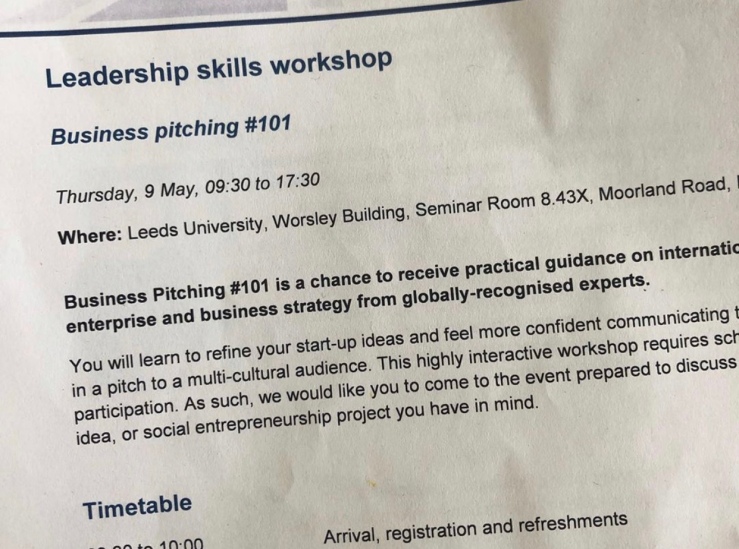
I would say that the networking question was a bit difficult for me to elaborate. Why? Because again, Chevening is looking for someone whose networking skills could create an impact. So, in my opinion, it’s not about showing off how big your network is or how often you attend networking events, instead of how you use your network to create a greater impact.
Using the same approach as in question 1, answer the question by STAR structure. Started by an introduction, get into the main body and finish with closing.
In my case, I was using my exchange program to South Korea during undergraduate study as a chance to meet new friends — where one of that friend was playing a great role of me working at an early-stage startup company, a place where I highlighted my leadership skills in the first question. The company is obviously has been a place for me to create an impact on the team and communities. For instance, a collaboration opportunity with external media to provide cross-content and it would give us huge traffic for the website.
Emphasise the impact you’ve created because of the networking you did. Give two to three networking skills and experiences that you have and again, be detail. Highlight that the impact is not only beneficial for you, but also for another side that you network with.
In the closing, you should elaborate Chevening’s role in your networking skills, you can try to relate how Chevening would expand your networking and how will you use Chevening networking if you were accepted as Chevening scholar.
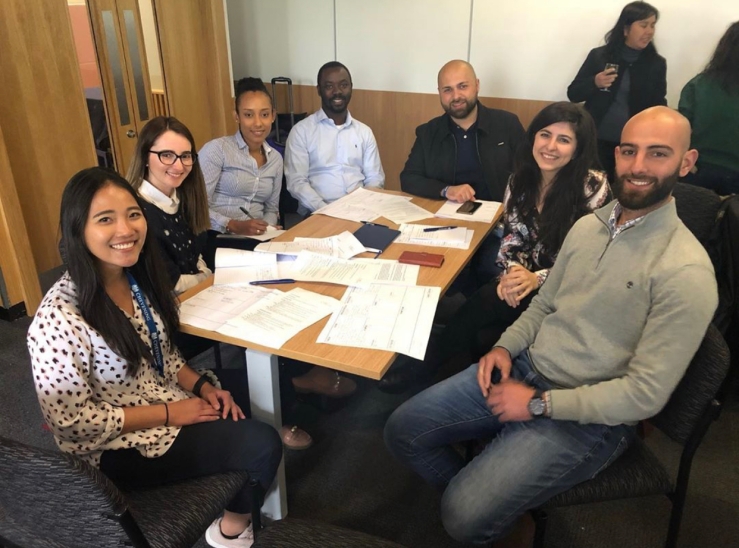
Studying in the UK
While questions about leadership and networking are more to dig your skills and capability in becoming a potential future leader, in my opinion, questions about studying in the UK and career plan are crucial to showing your cause, passion and how do you stay true with that. This can be a very critical part that would differentiate you from other applicants I guess, as I would say that Chevening is looking for people who would serve and build their community. So, it is important to answer the last 2 questions coherently.
To make your essay coherent, try to answer these questions as a base for you to answer questions number 3 and 4.
- What is my passion/concern?
- What problems do I want to solve?
- How will I solve the problems?
My ultimate advise for this part is don’t write more than 50% for the courses and campus rank. Write more about you: your passion, area of expertise, problems found in your field and what is your vision — which supposed to be related with your expertise area. Think about why taking a master study in those three sp ecific courses and universities is going to help you to achieve your vision. This information is really helpful to link and congruent your story in the question no.4 (career plan).
In my case, I used a fact that the growth of digital start-up in Indonesia has been astonishing recently but it is not followed by the success rate of a startup. If you want to use a fact, don’t forget to put the source. I outlined that the major problem was startup founders mostly great in building products yet tend to ignore other managerial skills such as people development, sales and finance (again, I put source). I then linked this statement to my personal experience working in an early stage start-up company where I had limited experiences or skills which happens to be a similar situation like startup founders. Hence, a degree in innovation and entrepreneurship would give me a balanced set of technical skills and knowledge in building early ventures.
From previous paragraph, I answered three basic questions to outline my background. Who am I? — A start-up early employee, what is my passion? — early venture development, what problems do I want to solve? — the high rate of startup failure rate and how will you solve it? — a degree in innovation and entrepreneurship by Chevening scholarship as one of stepping stones and followed by action plans that I will write in the question no.4
After outlining the “background” story about you, you can write the three courses. Highlight the reason why you choose them, it can be the campus ranking, curriculum, or professors/projects. I chose Warwick University’s Innovation and Entrepreneurship because of the curriculum, the final project worth 50% of the final grade in which devoted to developing the business innovation carefully. The school also placed the second rank of best Entrepreneurship master degree in the UK, after Oxford. My second choice was Imperial College and the third was the City University of London.
By the way, another advise choosing the school, besides research the course and its curriculum, do find out about the whole campus. Think about the facilities, clubs/societies, opportunities, the lifestyle (or living cost), nearby attractions, the city it’s located, etc. Ask current students about living in your designated campus, how do they like the campus and its surroundings? How about life after campus? I’m saying this not because I dislike Warwick University, instead, the campus has its own art centre and biggest sports centre in Coventry — which is realllly cool, but I would say Coventry itself doesn’t have many attractions to offer. But for the bright side, that really helps me to focus on my study and save money (it’s true!); it forces me to travel to other places more often hehe. I would share my travel stories in other posts. Coventry also not too far from London and Birmingham, the two biggest cities in the UK. It’s easier for me to jump on opportunities in UK startups scene.
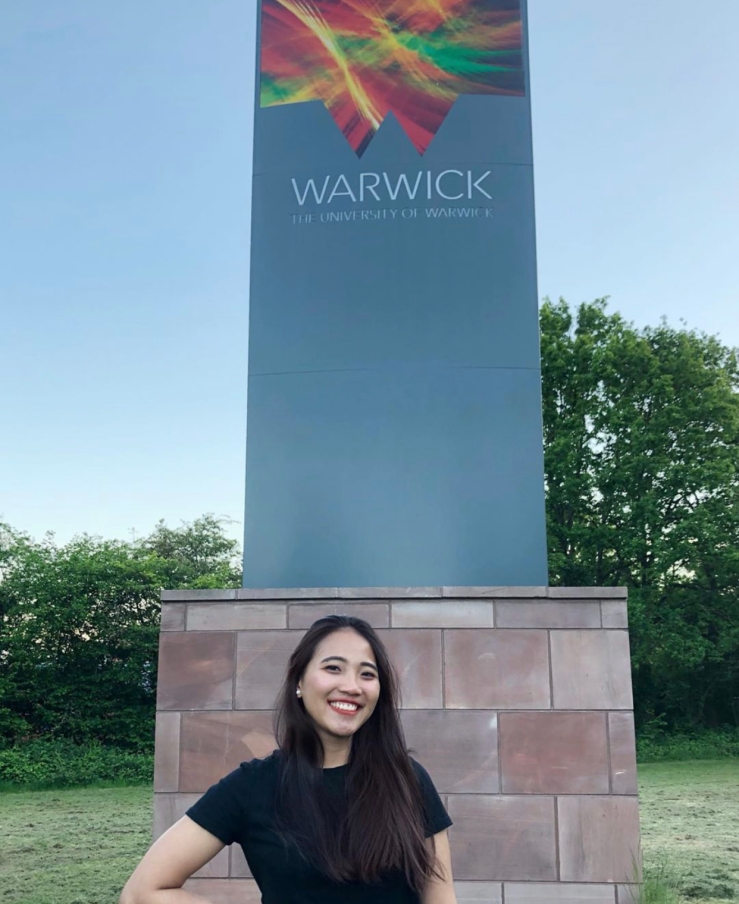
Career Plans
One thing I always shared to Chevening applicants who asked me to proofread their essay is: make a clear plan and breakdown into short term, mid-term and long term goal. Ensure each breakdown is contributing to your long-term goals if that makes sense? This way, it shows that you know how to get there. In my case, I wrote for immediate plans (2 years after study), the next 5 years and beyond 5 years. Make sure that your career goals are answering your concern and supporting your passion (stated in question no.3) which forms a more congruent essay.
As you need to relate your career goals to what the UK Government do in your country, you need to research. This might be different in every country and it might change year by years. You can start the search from the official UK’s government website ( http://gov.uk/world/name of country/news). Research thoroughly and try to link what you can contribute through your career goal.
Another thing to highlight is state how Chevening is one of the paths you would greatly benefit to take you to your future goals. How would you apply things you got from Chevening (the scholarship, the network, the education, the international friends) in your future career path? In my case, I outlined that I would use network from Chevening alumni to open access for mentors who can guide and share expertise to founders in establishing a new business.
As this is the last question, end the whole essay with a strong “punchline”. Keep elaborate Chevening, you can try to summarise outlined your aspiration by being a Chevening scholar. In my case, I mentioned that I still have to acquire deeper knowledge in innovation and entrepreneurship, as well as expanding my network to collaborate together in solving the problem. I acknowledged that from previous experiences, I gained valuable lessons in networking and leadership, however, I believe it’s still not enough. I then closed with thus, by being a Chevening scholar, I believe I would be (fill in the blank).
I hope this article helps you! I also want to highlight that this is just my personal experience and thoughts, it might be not relevant for different courses; many of my Chevening friends pursue a course that I don’t know it exists 😀 (but that’s what I like about Chevening: they acknowledge that future leaders can contribute in any field). Lastly, write the essay with all your heart, write what you feel right and true. Good luck, keep fighting and believe in yourself!
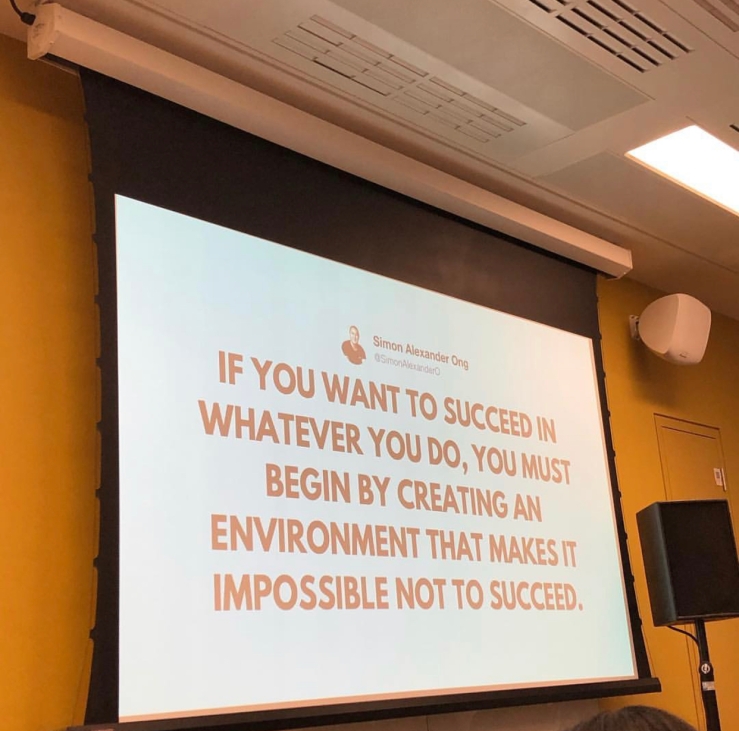
Share this:
Published by laurensiairma
ESTJ; my stories are on my own perspective. View all posts by laurensiairma
61 thoughts on “Writing Chevening Essay: Breakdown Those 4 Questions”
[…] breakdown of each question is posted here. However, there are some important points I want to point out when you work for Chevening […]
Thank you! That’s really inspiring!
what a magnificent breakdown kak, terima kasih 🙂 *udah pinter cantik pula idamaannnnn huaa
Haha thank you! Goodluck!!
Thank you so much! My leadership essay exceeds the word count of 500, will the reading committee consider my application? this is my biggest concern, please leave me a reply if you know about the issue.
HI Mohammad, I think it will be best to stay at 500. Panellists read thousands of essays, they probably do skimming reading and you don’t want to leave them uninterested if your story is too long. It’s our challenge to make our essay is engaging and effective within 500 words. It’s hard indeed, but just be direct and straight to the answers asked in the questions. Hope it helps.
Thanks a lot for your all your tips! I’m glad I bumped into your blog. I have a tiny question related to essays 3 and 4: when I write about the efforts of the UK being made in my country, do I need to cite/quote the, let’s say, the FCDO and put their reference somewhere? I’m wondering since I think the link itself would take away many words out of my 500 word count. Or is there a specific format I should stick to? Thanks once again!!
Hi Mitch. When I cited the source, I just write “according to xxx research in 2015 (for example)..” and then put the whole link in the footnote. Actually there’s no specific format about citing (As this is not academic essay) and I guess this format worked well. Hope it helps!
Amazing guidance, many thanks for sharing this with us confused youths. I am working for an educational Facebook page in Vietnam (which works to aid scholarship applicants in their process and is currently having over 41 000 followers). May I translate this entry into Vietnamese and share it on my page? I will credit you with this link and send you the draft before publishing Thank you in advance,
Hi Anne, thanks for reaching me out. Yes, sure you can 🙂 Please head to my Instagram @laurensiaimce and dm me. Thank youu!
Thank you so much for such an amazing and detailed information.
Dear Linos, Thanks for the kind word!
Thank you. Your insights shed bright lights on what panel really look for and what they expect. It is my first year applying for Chevening. The process itself offers so much excitement. I am a language teacher and want to develop myself as leader and influencer in education. Could I contact you directly to get help for my essays? thank you.
Hi Bekzod, yes you can head to my Instagram and leave me a dm. Thank you!
Thank you for this! Its a wonderful detailed and helpful article!
Thank youuuu!
Thank you so much Lauren, your posts has been really helpful. Please do you know if Chevening also supports for non partner universities
Hi Isaiah, they support non-partners too. If Im not mistaken, what makes different between partner and non-partner is the scholarship ratio between chevening and the sponsors (partner). For awardee, there wont be any impact.
priceless informaion!!!
Thank you 🙂
Thank you for this article Lauren, please can I send you a mail
Hello ! I am a student applying for Chevening . This is my first time. I have no IG or FB. May i have your mail ID? I request you to proofread my essays and offer feedback. Many thanks, M
Hi, please contact me via linkedin: Laurensia Irma Saraswati. Thank youu!
A very thoughtful article! I am also applying for Chevening scholarship this year. This article gives me a lot of insights into my essay
May I ask you to proofread my essays kak? Thanks a lot!
Regards, FM
Hi Faisal, thank you so much for reading my blog! I’m currently unavailable for proof read, so sorry! Good luck for your application!
Hi Abdibasid, thank you for reading my blog too! Good luck for your application!
Hi Laurensia, thanks for sharing this insightful article. Just curious in your opinion, is it better to write all three courses or can I just focus to one course only?
Hi Dee, so sorry for late reply. I wrote all three courses but I explained the first choice slightly more than other two. It’s because I really like my first choice and highlight what I need to study there. Hope this helps.
Hello Laurensia, I am beyond grateful to you for this detailed article!. I tried to reach out to you on LinkedIn but it seems that it’s not possible to contact you via instant messaging. I hope you get to see my request.
Hi Assia, yeah we connected through Linkedin right? 🙂
This is a beautiful guide, if followed carefully with a mother luck, one can get the scholarship I believe. Thanks a bunch
Hi James, thank you so much for reading my blog. Good luck!!
Wow ! Just perfect post. One of the best posts I have ever read about Chevening. Heartfelt thanks ♡♡
Hi Marwa, thank youuuu!!
Thank you so much for this, your guidance was invaluable!
Dear Akeyo, thank youuu so much for the kind words. Good luck on your application!
Dear Laurensia, This is the most flexible article i have ever read for Chevening application. I have a question regarding experience as i have more than 6 years of experience which is totaling 11,000 hours (35 hours / week). The minimum requirement is 2,800 hours but i want to know is there any upper limit. if i show the full 11,000 into my application. Would it impact or not? Waiting for your reply. Thanks
Hi Sagheer,
Thanks for reading my blog! As far as I know there is an upper limit, but I forgot what the number is. Btw, if the system already recorded that you have min. 2000 hrs of working experience, you’ll be okay!
Thank you Laurensia for your reply. Yes i checked Chevening website they said a range of minimum 35 to maximum 60 hours per week. So what i understand is that i can add maximum employers as far as the time spend per week at each employer does not exceed 60 hours per week.
Halo, Kak Lauren! What an inspiring article :)) Kak Lauren, would you please be my mentee for Chevening 🙂 I do really need someone to review my essay. Hopefully you can be my mentee. Thankyou in advance :))
Hi Ratri, Apologies for late reply. I’m soo sorry I’m currently unavailable for becoming a mentor neither proofread assistance 😦 Good luck in your application!
HeyLaurensia, Loved the the detailed article. I used the contents in your blog to edit my essays. Thank you so much.
Hi Maryam, thanks for your kind word! Good luck for your application!
Dear Laurensia, I am so excited to read your blog which has a completed information for potential applicants. I have question that i have worked more than 11,000 hours and if i want to show them in full does it have a negative impact on my application? Is there any Upper limit for working hours?
Thanks the insights
hello Laurensia, Thank you for this help! I want to ask if it’s okay to write UK in essay or we have to in full (united kingdom)? another qn is that, is there a problem when one chooses one course at all three universities or we have to choose three courses as well?
That was very usefull I think if this essey included some bullet piont can be more ataractive. Tank you .
Halo kak,… Ketika kita copas essay ke sistem chevening,sebaiknya antar paragraf diberi spasi (di-enter) atau tidak ya? Apakah hal ini mempengaruhi? Terima kasih
Apologise for very late reply. Aku dikasih paragraf dulu, supaya bacanya enak. Jujur gak tau mempengaruhi atau nggaknya, cuma at least buat akunya sendiri, aku jadi bisa baca lebih jelas. Hope this helps!
Hi Laurensia, thank you for such great tips on writing the chevening essay. I have been applying for chevening scholarship for the past 3 years and I am not shortlisted for interviews. I was wondering if you would be able to give me points on my essays? It would be great help for me. Thank you!
great explanation, really help me to start my essay! i’ll just bookmarked this, then
Thank you! Goodluck!
Hello, I am really glad i came across your blog. My questions are, I was given admission in only one University and that is the course i really wanted, can i just focus on that one course? I also want to know, what to know the most challenging stage for you. How long can the process of writing the essay take? Do i need someone to guide and coach me physically?
Hi Simon, thanks for reading my blog. I think, based on Chevening requirement, we still need to provide 3 courses. Perhaps you want to include similar courses in 3 different campus? Because as far as I know, if applicants can’t obtain the unconditional acceptance letter from the first choice, then they can submit LOA from the second choice.
The most challenging stage while writing essay was connecting the dots. I had several leadership & networking experiences, but struggled to showcase which one to put in the essay(since I only have 500 words). I know what to study, but difficult how to link it with future career and past experiences. I got helped by a friend and together we dig down what should be included in the essay, what is not. The process itself was more like a journey to know more of what I’m good at and my aspiration is.
For guide and coach, it depends on you. If you think you really know what your passion is and have clear aspiration, then maybe no need. Sometimes coach/mentor helps to connect your dots, it is you who should discover the dot itself.
Hope it helps, good luck!
thanks a lot forthis great article Laurencia, I wanted to know how we can get the university admission ? in the website part where you can search the available courses , they don’t show them you have to write the name or the university or course ? thnks for your help
Hi Hamza, you can find the course & campus list here: https://www.chevening.org/scholarships/find-a-course/ the list has a direct link to the campus website.
thank you so much be blessed
Thank youu!
Hello Dear Laurencia,
I hope that you are doing well and that Eid passed in a good way for you and your family , how can I contact you please it’s urgent , thanks a lot I made comments in the past but you don’t respond
Leave a comment Cancel reply

- Already have a WordPress.com account? Log in now.
- Subscribe Subscribed
- Copy shortlink
- Report this content
- View post in Reader
- Manage subscriptions
- Collapse this bar

The Wave of Study in Abroad
विद्या विनियोगात् विकासः (vidyā viniyogāt vikāsaḥ)
Breakdown of Chevening Essay Questions: A Comprehensive Guide
Navigating the Chevening scholarship application can be a rewarding yet challenging process. Among the crucial components are the essay questions, which provide an opportunity for you to showcase your aspirations, experiences, and potential. In this comprehensive guide, we’ll break down each of the Chevening essay questions and offer insights to help you craft compelling responses.
1. Chevening is looking for individuals who will be future leaders or influencers in their home countries. Explain how you meet this requirement, using clear examples of your own leadership and influencing skills to support your answer.
Focus: Demonstrating Leadership and Influence
This question aims to gauge your leadership abilities and potential to effect positive change. To answer effectively:
- Provide Examples: Share specific instances where you demonstrated leadership, whether in your academic, professional, or community endeavors.
- Highlight Influence: Discuss how your actions influenced outcomes, motivated others, or brought about change.
- Connect to Future: Explain how your leadership experiences align with your future goals and how the Chevening scholarship will further develop your leadership potential.
2. Chevening Scholarships are awarded to individuals with demonstrable leadership potential who also have strong academic backgrounds. How do you intend to use your Chevening experience to develop your leadership skills and create a positive social change?
Focus: Linking Academic Excellence and Leadership
Here, the focus is on your academic prowess and its relationship to leadership and social impact:
- Link Academic and Leadership Goals: Explain how your academic pursuits are intertwined with your leadership aspirations.
- Social Impact: Discuss how your Chevening experience will enable you to contribute to positive societal changes.
- Specific Plans: Outline tangible actions you’ll take to enhance your leadership skills during and after your studies.
3. Network with people of different nationalities and backgrounds. What can you learn from others? How will this enrich your experience as a Chevening Scholar?
Focus: Embracing Diversity and Networking
This question emphasizes cross-cultural collaboration and the value of a diverse network:
- Learning from Diversity: Highlight the benefits of interacting with people from various backgrounds, including new perspectives and insights.
- Enriching Chevening Experience: Explain how these interactions will contribute to your personal and academic growth as a Chevening Scholar.
4. What influence do you hope to have on your home country or region as a result of studying in the UK?
Focus: Positive Impact on Home Country
This question assesses your vision for the future and your commitment to your home country’s development:
- Specific Goals: Outline the specific areas you aim to impact upon your return.
- Alignment with UK Study: Explain how your UK education will equip you to address challenges in your home country.
5. Please explain why you want to study in the UK and why you have chosen your selected course(s).
Focus: UK Study and Course Choice
This question explores your motivations for studying in the UK and the relevance of your chosen course:
- UK’s Strengths: Discuss the UK’s academic excellence, resources, and opportunities that attract you.
- Course Relevance: Explain why your chosen course aligns with your academic and career goals.
6. Summarize all relevant leadership and service-related achievements in which you have participated.
Focus: Leadership and Service Achievements
This is an opportunity to succinctly list your notable leadership and service accomplishments:
- Concise Presentation: List achievements in a clear and organized manner.
- Highlight Impact: Briefly explain the significance and outcomes of each achievement.
Navigating the Chevening essay questions requires a thoughtful approach that showcases your unique qualities, aspirations, and commitment to positive change. By addressing each question’s specific focus and providing well-structured responses, you can present a compelling case for why you are an ideal candidate for the Chevening scholarship. Remember to tailor your answers to highlight your strengths and alignment with Chevening’s values and objectives.
India (Chevening Scholarship) | Chevening
Leave a Reply Cancel reply
Your email address will not be published. Required fields are marked *
Save my name, email, and website in this browser for the next time I comment.
.png)
- Sep 17, 2020
Part 2: Applying for the Chevening Scholarship (Essay Tips)
Updated: Oct 14, 2020
This serves as Part 2 of the Chevening Tips, in the event that you would like insight in as far as what is Chevening and an overall insight on what is required to apply, kindly have a look at Part 1: Applying for the Chevening Scholarship (FAQ).
Applying for the Chevening Scholarship Series
Three Years a Charm: Becoming a Chevening Scholar
Part 1: Applying for the Chevening Scholarship (FAQ)
Disclaimer: Note that the advice given here below is my own personal opinion and not that of the Chevening Secretariat or the British Foreign and Commonwealth Office .

When applying for the Chevening Scholarship, you will be required to submit four written essays, each a minimum of 100 words and a maximum of 500 words.
Quick Tips on how to write your 4 Chevening Essays:
When writing your essays, use the STAR and SMART approach.
Ensure that you cover the bases in each of your essays, mentioning the most important elements.
Your essays have to be truthful, concise, and well-written.
Ensure that you tell a story when writing your essays, you can add bullet points to list achievements and highlight career goals however there should be a flow.
Ensure that any stranger can make out what you are trying to say, making it clear what you are talking about. When making references to data or situations from your home country, be sure to mention the country's name.
Refrain using words like our and their, and opt to name what you are talking about.
Use Grammarly to spell check your work and ensure that your grammar is correct.
STAR Approach - Derived from Muse
Situation: Set the scene and give the necessary details of your example.
Task: Describe what your responsibility was in that situation.
Action: Explain exactly what steps you took to address it.
Result: Share what outcomes your actions achieved.
SMART Approach - Derived from CFI
Specific: Well defined, clear, and unambiguous.
Measurable : With specific criteria that measure your progress toward the accomplishment of the goal.
Achievable: Attainable and not impossible to achieve.
Realistic: Within reach, realistic, and relevant to your life purpose.
Timely: With a clearly defined timeline, including a starting date and a target date. The purpose is to create urgency.
Four Essay Topics

Leadership and Influence
Chevening is looking for individuals who will be future leaders or influencers in their home countries. Explain how you meet this requirement, using clear examples of your own leadership and influencing skills to support your answer. - Question as per the Chevening Website
Using the methods explained above (STAR AND SMART Approach), ensure that you speak on the times you have depicted leadership traits, the leadership positions you have occupied and the times you have displayed a position of influence. These can range from managerial positions, leadership in organizations (NGO's included), or in your day-to-day life. In addition, you can touch on what leadership ambitions you have and how this ties back to your community.
It is important to ensure that the examples are impact-driven and not only for self-gain.
Chevening is looking for individuals with strong professional relationship-building skills, who will engage with the Chevening community and influence and lead others in their chosen profession. Please explain how you build and maintain relationships in a professional capacity, using clear examples of how you currently do this, and outline how you hope to use these skills in the future. - Question as per the Chevening Website
Writing your networking essay is primarily about showing clear examples of the relationships you have built, how they were established, and how you have managed to maintain them. In addition, highlight how these said relationships have been instrumental in your personal development and the work that you do. Ensure that you are able to glean from every example the skill acquired and how these skills will be useful to you in the future as a possible Chevening scholar. This essay, in essence, is to show that you have the ability to use the opportunities given to you in a tangible and impactful manner.
Career Plan
Chevening is looking for individuals who have a clear post-study career plan. Please outline your immediate plans upon returning home and your longer-term career goals. You may wish to consider how these relate to what the UK government is doing in your country. - Question as per Chevening Website
This essay provides an opportunity for you to layout an immediate 2-year plan, and a 5 to 10-year plan. Your plans need to be attainable and should speak to your ambitions as laid out in your career plan. The most important tip for when writing out your career plan, is to ensure that when you touch on your professional experience, it not be written as though it is a Curriculum Vitae but rather speaking on impact, journey, and career trajectory. You too are welcome to link your journey thus far, to how this informs your next career move, namely pursuing a masters degree. You should depict an understanding of what you want to do in the future, how this is tangibly attainable, and what your ambitions are long term.
Studying in the UK
Outline why you have selected your chosen three university courses, and explain how this relates to your previous academic or professional experience and your plans for the future. Please do not duplicate the information you have entered on the work experience and education section of this form. - Question as per the Chevening Website
Do not duplicate your career essay in this essay, however, you can link the information. You will also be required to list the three universities you will be applying to, the name of the courses at the said universities, and why you chose the particular university.
Tip: Depending on which course you intend to study, google the top-performing universities in the said field to inform your university choice. Then ensure that the universities you would like to attend are Chevening partner universities, before finalizing your list of your three chosen universities.
Bonus: I have asked three scholars who have managed to successfully be chosen for Chevening before to assist with proofreading 3 prospective scholars essays before submission. Kindly note that these will be given on a first-come, first-serve basis. This available to a total of 9 prospective scholars and no more. Only the 9 successful prospective scholars will be contacted. If you are not contacted, unfortunately, the 9 spots were already taken.
To get your essays proofread - please fill in the form at the link here .
(Available to ONLY the first 9 applicants)
Proofreading volunteer scholars (each reading 3 prospective scholars essays EACH)

Rosalia Shiimi - Rosalia holds a BSc Honours Degree in Geology and a Certificate in Investment Management from the University of Cape Town. She is currently the Acting Grade Control Geologist at Vedanta Zinc International’s Gamsberg Operation. She is a part of the 2021/2022 Chevening cohort, pursuing a Master of Science in Applied Environment Geology at Cardiff University.

Abel is a Certified Internal Auditor (CIA) and former Head of Internal Audit. He holds a Bachelor of Accounting Science and Postgraduate Diploma in Internal Auditing. In addition, he too is a Section Chairperson and Branch Executive member in SPYL and serve on the NCCI Windhoek Trading Committee. He will be pursuing a Master of Arts in International Relations at the University of Birmingham.

Hilja Eelu - Hilja is a UCT molecular biology graduate and a previous recipient of the Allan Gray Orbis Foundation Fellowship. Having been awarded both the Chevening and Commonwealth scholarship, she will be pursuing the MSc Control of Infectious Diseases at the London School of Hygiene and Tropical Medicine starting September 2020, thanks to the Commonwealth scholarship.
Additional Reading Material
Essay Tips from the Reading Committee of Chevening
Essay Examples
Writing an effective networking essay
My Application for Chevening Scholarship
Chevening Leadership Essay
How I won the Chevening Scholarship - Part 2: Writing your Essays
From One Powerhouse to another
Twitter - @MavisBraga
Instagram - @MavisBraga1
Facebook - Mavis Elias
Website - www.mavisbraga.com
Recent Posts
Practical tips for preparing for university 101: A checklist guide (Part 4)
Preparing for University 101: The Chevening guide (Part 3)
What they did not tell me about preparing for University Life
2 commentaires
The forex trade market is the place where monetary forms are exchanged. Monetary forms are significant in light of the fact that they empower acquisition of labor and products locally and across borders Forex trading for beginners . Global monetary forms should be traded to lead unfamiliar exchange and business.
Thank you so much for your great effort. I have got tons of ideas after reading your tips and essay prompts. You are really amazing one. Love you from Myanmar

How To Write Chevening Essays | Chevening Scholarship
Study in uk.
Tips for Writing Your 4 Chevening Essays.
Table of Contents
Use the tips provided below to write successful Chevening Essays.
Utilize the SMART and STAR approaches when writing essays. Make sure you have addressed all points thoroughly, highlighted the most significant ones, and followed all instructions provided. Your Chevening essays should be truthful, concise, well-written, and thoroughly researched. When writing essays, make sure you create a narrative. Utilizing bullet points can be useful to showcase achievements or career objectives; however, the narrative must have a logical flow. Make sure those who hear you speak can comprehend what you’re saying. Make sure to mention your country’s name when discussing data or situations from that location. Eliminate using words such as our or their, and instead use words that accurately convey what is being discussed. Grammarly can help you double-check your work for spelling and grammar errors, so use Grammarly today!
START Approach — Drawing From Muse
Setting the scene and providing details of your example. Task: Describe your role in this situation. Explain the steps taken to resolve it. Result Share the outcomes of your actions.
Smart Strategies Inspired by CFI
Specific: Accurate, unambiguous and well-described. Measurable – With specific criteria to measure progress towards reaching the goal. Possible: Realizable and achievable. Realistic: Within reach yet realistic and pertinent for life purpose. Timely Establish a timeline with both start and goal dates, then create urgency around each topic. Four che Chevening essays Topics to Get You Moving forward Leadership and Influence Chevening is seeking individuals who can serve as leaders and influencers in their countries. Use concrete examples of your leadership and influence skills to demonstrate how you meet this requirement, according to the Chevening Website.
Utilize the STAR AND SMART Approach (STAR and SMART Approach) to reflect upon times you have demonstrated leadership traits, held leadership positions, or been influential. These could include managerial duties, NGO leadership positions, or your everyday life. Furthermore, discuss your leadership objectives and how they relate to those in your community.
Networking and Chevening Essays:
Leadership and influence.
Chevening seeks individuals with strong professional relationship-building abilities, who will engage with the Chevening community and inspire others in their chosen profession. Please describe how you have developed and maintained professional connections; give examples, as well as your plans to utilize these abilities going forward. – Please answer the following questions as posed on the Chevening website:
Your networking essay should provide concrete examples of relationships you’ve formed, nurtured and maintained. Highlight how these contacts have contributed to both personal growth and the work you do. As a potential Chevening scholar, you should be able to draw upon each example the skills learned and how they will benefit you in the future. The purpose of this essay is to demonstrate that you can maximize opportunities presented to you.
Career Plan:
Chevening seeks individuals with a comprehensive career plan after they graduate. Please outline both your immediate plans and long-term ambitions, which may include involvement with the UK government in your country. – Questions as per Chevening Website
This essay will enable you to craft 2-year and 5- to 10-year plans that are achievable, while also reflecting your career plan. When crafting this document, avoid treating it like a Curriculum Vitae; rather, emphasize its impact and path in relation to other opportunities like pursuing master’s degrees. Your career journey also serves as an opportunity to show that you have thought deeply about long-term ambitions as well as short-term targets.
Study In UK:
Please explain why you selected these three courses and how it relates to your professional and academic experiences. Do not repeat information provided in the education or work experience sections of this form. – Questions as per Chevening website
It is best not to duplicate information within this essay. Instead, link the information together. Furthermore, you must list three universities to which you are applying and include the names of courses offered at each one as well as your reasons for selecting that particular institution.
Tip: To help you decide which university to attend, research the top-performing institutions in that field. Before making your selections, be sure to confirm them with Chevening partner universities so that all is confirmed.
Questions with Sample Answers for Chevening Exams
1- Chevening seeks individuals who can become leaders or influencers in their home countries. Demonstrate how you can meet this requirement by providing specific examples of your ability to influence others and lead others toward your answer (minimum word count 100 words; maximum word count 500 words).
As a disaster management professional and agriculturalist, I am given the opportunity to organize events, seminars, or workshops where my leadership abilities can be demonstrated. As a professional, I must attend field trips with farmers and laborers who have undergone training or attend seminars or group discussions held. Through these experiences, my leadership abilities must be demonstrated. I possess excellent management, leadership, and operational abilities as well as a broad practical and theoretical knowledge of projects such as Project Management, Climate Change & Disaster Management, Agriculture Planning & Food Security Disaster Response Sustainable coastal livelihoods Physical & Social Survey Techniques (qualitative/quantitative), Geographic Information System (GIS) Report Writing Qualitative In addition To Quantitative Methods Research etc..
Leadership abilities have the power to shape people’s environments, and can be passed down from family members or close relatives. A leader must put their plans into action with determination, vision, and perseverance for results. At the university, I was part of various cultural groups and organized successful programs. After graduating, I decided to work with street children but lacked enough money for schooling. No matter how many times I tried to open a school, my drive never wavered. To reach my goals, I sought ways to make them happen; so after consulting with friends about my idea and visiting teachers to convince them of its viability, we launched Our Education Training for street children as an initiative.
Leaders must be dedicated to their job and put in the effort, as dedication and perseverance play a crucial role. They aren’t those who seek out opportunities; rather, they create them by applying vision and perseverance towards an ideal. As a new leader, I feel I’ve made great achievements thus far; however, to further hone my leadership qualities I plan to enhance both education and professional capabilities by learning more about people development through service to my country and society. With this knowledge gained, I hope to serve my nation for its improvement through service towards its people.
2- Chevening seeks individuals with strong relationship-building capabilities, who can engage within the Chevening community and motivate others in their field of expertise. Demonstrate how you create and maintain professional connections, giving specific examples of your accomplishments; also discuss how these abilities will be employed in the future (minimum word count: 100 words; maximum word count: 500 words).
Chevening scholarships have given me the chance to meet people from many cultures. If I were chosen as the winner, I hope to build relationships with Chevening graduates and company representatives to find better solutions for environmental foreign policy – since these issues concern us all. My life experiences have given me opportunities to connect with hundreds of people from various countries, religions, cultures, and professions; now through Chevening’s scholarship program I hope to connect even more people around the world!
My work at a non-profit organization has given me the chance to connect with many networks. I’ve formed connections with donor organizations, local stakeholder groups and community members alike. Additionally, as organizer of trainings, seminars and campaigns I was able to build rapport with experts in the field. So I participated in numerous field trips including one for farmers living rurally as well as urban slum dwellers; gathering data regarding their problems before presenting it in writing to authorities or daily newspapers. Now my aim is to build an effective network to address these matters efficiently.
My network skills are used to support my job responsibilities, personal growth and gathering data that can inform strategic actions. As I progress in my profession, I will devote more time to using my network for guidance when making decisions. Since many issues I need to solve and the results I must deliver require collaboration with people both inside and outside my network; thus, in addition to connecting with those within and outside of my professional environment I also plan on expanding it outside these immediate circles.
Thus, I will not settle for a casual presence but will remain active through social media platforms such as Emails, LinkedIn, Facebook and Twitter. With passion and determination I aim to expand my networking experiences and knowledge so that I may contribute towards improving my country and contributing towards everyone’s wellbeing.
3- Outline the reasons you selected these three courses for your university education and how they relate to both your prior professional or academic experience and future plans. Do not duplicate information already filled out on the education and work experience section of this application (minimum word count 100 words; maximum word count 500 words).
As a disaster management expert and agriculturalist, my knowledge makes me particularly sensitive to environmental concerns. Currently employed as the Project Officer for Charity Foundation – a national NGO – my projects revolve around environmental protection, climate change adaptation strategies in agriculture as well as other sectors.
While completing my Master’s studies, I became deeply engaged in climate change issues that impact urban slum dwellers’ quality of life. I have been exploring the impacts of climate change on five assets for livelihood, as outlined in the Sustainable Livelihood Framework from DFID. My undergraduate research focused on discovering alternative sources of chemical pesticides to control plant diseases through plant tissue cultivation, genetic engineering and biotechnological advancement. Through bio-control agents and botanical extracts, I’ve provided biologically eco-friendly alternatives to seed-borne and soil-borne fungal pathogens. To date, three papers have been published and several more are under examination.
My courses from esteemed UK universities are focused on environmental change and management, which can have disastrous results if not managed effectively. Since my master’s program in Environmental Change and Management overlaps with my professional and academic interests in environmental engineering and project management, this field was an obvious choice for me to further hone. Environmentalism also plays a large role in international development – something which challenges both my professional and academic abilities to the limit.
I hope to further cement myself as an environmental expert by expanding my knowledge and experience.
4- Chevening seeks individuals with clearly stated post-study career plans. You should include both your immediate objectives upon return home as well as long-term plans that align with what the UK administration is currently doing in your home country (minimum word count: 100 words; maximum word count: 500 words).
My country faces numerous UK priorities, but the one most relevant to my goals is Environment and Climate Change. Bangladesh has always been vulnerable to natural disasters due to climate change, rising sea levels, and higher temperatures that pose greater threats. Development in our country is necessary and I aspire to contribute my expertise in this area in order to benefit my people and my nation. By sharing what I know with others, I hope to give something back and make a positive impact on my home turf. I want to contribute towards the development of my nation and make a larger impact. Bangladesh’s frequent disasters and their effects on agriculture pose risks to livelihoods such as hunger, poverty, unemployment insecurity, malnutrition, loss of food production and migration into cities.
After I finish my MSc program, I plan to specialize in climate change and environmental problems. As an environmental expert, I will work with research institutions or institutes. With my dedication and extensive experiences from the UK, I am certain that with determination and hard work I will be able to surpass expectations and contribute significantly towards Bangladesh’s progress in the near future.
Check Out: Chevening Scholarships 2023-2024 | Masters
Tips for Solving Chevening Essay Questions:
1- Essay Discusses Networking Capabilities Candidates
He should discuss how he has been exposed to different cultures, age groups, and socioeconomic classes. Additionally, he must give an outline of the length of time he’s been involved in relationships that have lasted for some time. He must further develop his communication abilities across a range of contexts. Candidates are encouraged to demonstrate their connections and personal relationships on both national and international levels. He should describe how he interacts with individuals from a range of professions, such as international and government representatives, public officials, and academics.
2- The second essay will ask questions about your leadership abilities.
How did he take into account each member’s opinions and negotiate between them? His experiences working with various personalities and leading successful projects. How his leadership program had long-lasting effects in his community, ultimately leading to positive changes? The candidate should describe situations in which they served as leader. How did he manage his team’s management skills across various projects? He should also describe how he managed community initiatives with an annual fixed budget.
3- The third essay will focus on your professional goals for the future.
Candidates should create a comprehensive educational, social and professional plan. Candidates must be able to articulate their experiences, abilities, volunteer activities or work-related knowledge. Candidates should clearly articulate their career objectives and plans to demonstrate how they plan to contribute to the nation or community. Every goal should be intelligently set and achievable.
4- Chevening essays should focus on why you wish to study in the UK.
Academically, The UK is one of the top nations. Candidates should demonstrate their interest in understanding cross-cultural differences. Furthermore, they should demonstrate an enthusiasm for international research that benefits society as a whole. Individual reasons for wanting to study in the UK vary, but must remain valid and relevant. For a master’s degree that lasts one year, studying here offers great advantages. Furthermore, the UK boasts some of the world’s top-ranking universities.
Check: How I Won a Chevening Scholarship – 10 Tips for Success
Apply Now Official Site:
Rizwan Hameed
Related articles.

Malaysian Government scholarships 2023-2024 | Apply Here

Commonwealth Distance Learning Scholarships 2024-2025 | UK

King Abdullah University Scholarship 2023-2024 | Apply Now
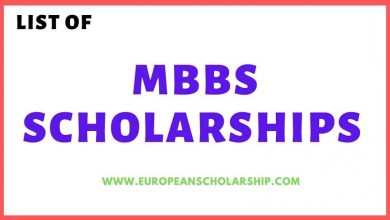
List Of MBBS Scholarships 2023-2024 | Medical Grants
Seeking for Essay question for 2024 admission
go through The article Please.
Leave a Reply Cancel reply
Your email address will not be published. Required fields are marked *
Save my name, email, and website in this browser for the next time I comment.

You cannot copy content of this page
Cynthia Kimola
Connecting You To Opportunities
Guide: How To Answer Chevening Scholarship Interview Questions
In my last two posts, I shared tips on how to prepare for the Chevening Scholarship interviews and also provided you with a list of sample questions that I compiled from what I was asked and what different scholars have also been asked in their interviews in the past.
The feedback I got from the two articles was overwhelming as you found them authentic and informative as they drew from my personal Chevening Scholarship experience.
As you prepare for the face to face or video interviews, I highly recommend that you prioritise doing a mock interview to practise how to answer the anticipated questions.
Get the sample questions from this article and approach a family member or friend who you trust to be candid with you, to role play as an interviewer.
A mock interview is not only essential in helping you answer the interview questions concisely, to identify your strong and weak points but also offers feedback on your mannerisms and body language, and will help you work on any improvements, if needed.
In this article, I am going to offer a guide of sorts on how to answer the most popular Chevening Scholarship interview questions and what aspects the panel looks for in your answers.
Let’s start shall we?
Table of Contents
1. Why do you want to study in the UK?
You should have thoroughly researched the various programmes you are applying for in the universities you have chosen.
This will help you to clearly articulate why you want to study in the UK and specific reasons why you have chosen those particular schools.
You can separate yourself from the rest of the interviewees by highlighting the unique thing about that course or university and why it’s important for YOU to go there.
Also throw in that you are going to gain new knowledge and skills, to fill in a skills gap in your field or organisation.
With this question they also want to see if you have done some background research on:
- its education standards,
- culture and
- anything else that will reveal that the choice aligns with your goals and study aspirations.
You can either give one reason or several, it is up to you.
I recommend pre-empting the answer to the panel by saying that you have 2 or 3 reasons and then going ahead to state them.
This is called signposting.
You act like a guide and the panel will follow your answers closely as they will be expecting those number of reasons.
It also makes you look quite organised.
Possible answers to why you want to study in the UK
a) The UK is diverse and multi- cultural.
Studying in the UK will give you an opportunity to meet and interact with people from around the world. This will help you learn from each other as you share your different experiences and make you an all rounded person.
b) The UK is noted for quality teaching and research.
Here you can quote the university rankings and say that UK universities consistently top global rankings , a testament to the high standards of teaching and research in the facilities.
Most of academia are involved in research and you will be taught by researchers who wrote the books or concept papers you have been reading (research the schools you are choosing and see if they have that).
UK universities also have partnerships with academics from other countries who give guest lectures and you get a chance to learn from global thought leaders.
c) UK Education nurtures global leaders and influencers.
You can mention the top leaders you know or admire who have studied in the UK . They can be in your chosen field or globally that have made an impact and correlate that with your studies and what you want to achieve.
2. Why did you choose your course and university?
Here you need to demonstrate that you know more about the field of study you are in and how the course aligns with your goals and aspirations .
You can mention that the university is the top leader in that course, the faculty are not only academics but also involved in the field as experts, authors etc.
If the course offers fieldwork or internships/ placements, that can be a good reason to say that you will get hands-on experience and get to apply the knowledge practically.
You can also touch on how the university or course ranks ; the general ranking or QS and Times rankings, any student body events that will compliment your academics, notable alumni associations from the university etc.
In the courses, mention some key modules that relate to your career goals, notable professors and research done by these academics in your field etc.
Be passionate and convincing in your answer.
3. Leadership & Influence Question
Do not be shy about your achievements!
Be bold when telling the panel about your leadership experience and successes. Mention your role, what you did or achieved.
Do not belittle anything , you can mention whatever capacity you have acted as a team leader; like a school prefect, head of a group assignment, leading a project at work, forming a company etc.
Do not generalise when speaking about your achievements.
You need to be specific and give clear examples of how you utilized your leadership skills to solve a problem.
Mention any charity/volunteer activities that you were involved in and the outcomes you achieved.
4. Networking Question
The Chevening Scholarship is big on networking and you need to truly illustrate that you understand what networking entails and how you have used it to propel yourself or make a difference in society.
You need to give clear examples, in what capacity you used networking, how it benefited you , your workplace or society.
Networking can be done in various ways, face to face or virtually.
Do not be afraid to mention how you connected with someone through social media or even Whatsapp and how you made good use of it.
Networking does not always have to be in a work capacity, you can illustrate networking at school, at church, in the family etc.
Also touch on the networking opportunities you will utilize when you are selected as a scholar, such as meeting scholars from all over the world, travelling and increasing your connections etc .
5. Career Plan Question
To make it easier to answer this question, break it up into three parts :
- Your immediate,
- five-year and
- ten-year career goals.
Know where you want to be and say so.
This is where you get to showcase your goals and dreams and how you hope to achieve them in a logical and tangible manner.
You need to illustrate how the Master’s degree will help you attain those goals.
An important thing to note though, is don’t make the goals individualistic.
Ensure they touch on how they will help the society or your community because the Chevening Scholarship is all about equipping leaders for your home country.
Visit the DFID website development tracker and identify the development priorities for the UK and what the UK is doing in your home country.
You will be able to identify the projects that fit into your career and how you can lend your expertise. This can help you sound relevant and up to date with your country’s needs.
Don’t make the goals individualistic.
Think of the society and your country at large.
The interview is just a convesration between you and the interviewers.
You impressed them with your essays and you are now taking the panel through your story, so own it.It’s yours. Be confident while you tell it.
These are your experiences, your goals and aspirations so show them that you are the best candidate for this award.
Another important tip is:
To re-read your essays so that you are familiar with what you wrote, incase they touch on any specifics.
I believe you will do great.
If you found this helpful, please let me know in the comment section below. You can also let me know what questions were hard for your to answer and how you are preparing for yoru interview.
Please share the post with your friends if you found it helpful.
#ConnectwithKimola
- Latest Posts
Latest posts by Cynthia Kimola ( see all )
- WHY YOU NEED TO BE CHECKING THE CHEVENING SCHOLARSHIP WEBSITE REGULARLY! - September 27, 2020
- Picking Your References – Mistakes To Avoid On The Chevening Scholarship - September 14, 2020
- Include These Fun Reasons In The ‘ Why Do You Want To Study In The UK’ Chevening Essay - September 14, 2020
Related Post
Ep 2: Applying For Chevening Scholarship? Eligibility Requirements
S2E1: Reading Committee feedback for applicants on Leadership Essay For Chevening Scholarship
Chevening Scholarship Interview Tips: How To Prepare and What To Expect

Tips for Chevening Essay Questions, New

Written By: Shaher Hamdan, Reviewed By: Dr. Marwa Hamdan
Table of Contents
Tips for Chevening Essay Questions
Essay questions are considered the major criteria that determine the strength of your application and contribute a ton in the selection decision.
Essay questions are a good chance to show your leadership and communicating skills which are the core features of the perfect applicants, even more important than academic excellence. There’s a useful style which we recommend to follow when writing the essays called STAR. It stands for Situation, Task, Action and Result. We highly recommend using this style to present your examples either on Leadership or for speaking on networking skills. And each essay should be systematically organized and consist of introduction, body and a conclusion.
It’s recommended to write a draft on a separate document and let someone proofread it before submitting your application, also it is important to highlight your relevant activities from your studies or professional background, any project or initiative that you have been actively involved in. In addition to voluntary work which is a very important factor for Chevening scholarship.
NEVER COPY PASTE in your application as it would be easy for them to notice it since they use accurate software tools which detect copy paste plagiarism.
There are a total of 4 essays, each should be between 50-500 words;
1) leadership essay.

It’s considered to be the most important essay question in the application in which you are expected to talk about your role as a leader throughout your different study years in both school and university, work and your life in general. Give examples of the challenges you faced and how did you overcome them and what lessons you gained from these king of situations and how to utilize this experience in the future. This essay should include examples as the following:
- The scenarios in which he played leadership roles.
- How he managed good team management skills in different projects.
- How he led community projects on a fixed budget.
- How he considered the opinion of every member and negotiate among them.
- How he worked with different personalities and led successful projects.
- How his leadership project contributed in the long term and brought a positive change in his community.
2) Networking skills essay

In this essay you should mention your networking and personal relations at the national as well as international levels,talk about how you deal with the people in a variety of professions including government and international representatives, public authorities, and academia and show how you are familiar with a different culture, age groups, socioeconomic classes. Show your interest in improving your network skills by involving in the alumni community and all the different activities and how you will learn and apply your skills in the future to benefit your home country.
3) Why do you want to pursue your studies in the UK essay
In this essay you will start by describing your field of study and career and how they are related to your chosen courses and what these courses have to offer for your improvement and what makes UK universities so special for you specially in your field of study and how big your knowledge will increase by studying these courses in the UK. the candidate should mention his interest in cross-cultural understanding. And finally show how all this is related to and necessary for you in order to achieve your goals and plans for the future.
4) Future career plan essay
Chevening is basically looking to invest into future leaders and influencers, so your essay should demonstrate that:
- You will be a leader in your chosen field and you will bring a great impact once back.
- You should be clear and specific regarding your future plan.
- You should have realistic goals.
There are common styles that successful candidates usually follow:
- Short term & long term career goals.
- It is advisable to elaborate further in your answer as which sector you are planning to work at:
- In the academic filed: For instance working to improve education at Palestinian universities.
- In Governmental field
- In local NGOs
- In the international NGOs
- Starting your own business.You can add any other relevant field where applicable
- Chevening is looking for individuals who have a clear post-study career plan. outline your immediate plans upon returning home and your longer term career goals. You may wish to consider how these relate to what the UK government is doing in your country.
- You should mention your career plans that show how he is going to support his community or country.
- All Goals should be smart enough and realistic.
- A candidate’s plans should include a social, academic, and professional approach.
- You must relate your skills, volunteer activities, and work experience to your career plans.
- A candidate should show his interest in International research that would contribute to the community.
Reference letters
Chevening requires 2 letters of reference..
- A referee must know the applicant either professionally or in academics.
- Reference letters would be verified by the British council once a candidate gets shortlisted.
Still more to come, Our next article regarding Chevening Interviews will be published soon.
Keep follouing our CHEVENING SCHOLARSHIP page: https://mdguidance.com/category/chevening-scholarships/
Here is an overview of the application and selection process, so you always know what’s going on.
Tips for Chevening Essay Questions, New Tips for Chevening Essay Questions, New Tips for Chevening Essay Questions, New Tips for Chevening Essay Questions, New Tips for Chevening Essay Questions, New Tips for Chevening Essay Questions, New Tips for Chevening Essay Questions, New
4 thoughts on “Tips for Chevening Essay Questions, New”
I would like to thank you for the efforts you’ve put in writing this website. I am hoping the same high-grade web site post from you in the upcoming also. In fact your creative writing skills has inspired me to get my own web site now. Actually the blogging is spreading its wings fast. Your write up is a good example of it.
I like this weblog so much, saved to bookmarks.
Keep up the excellent piece of work, I read few articles on this web site and I think that your web site is very interesting and has got lots of wonderful info .
thank you very much walal
Leave a Comment Cancel Reply
Your email address will not be published. Required fields are marked *
Save my name, email, and website in this browser for the next time I comment.
Insert/edit link
Enter the destination URL
Or link to existing content


Chevening Application Tips – Common Questions
- Post author By JB English
- Post date September 19, 2020
My name is Soma, and I am a Chevening alumni. I got the Chevening scholarship in 2017 studying a master of Project Management at Anglia Ruskin University.
I often get asked how I got the Chevening Scholarship. Instead of answering the same questions over and over again, I have decided to write a series of blog posts. In this blog post, instead of giving you Chevening application tips, I will share my Chevening application journey, mainly covering: how I wrote my essay and how I answered the interview questions. I hope that what I share here will help you with your future Chevening application.
Before we get started – A disclaimer .
“ The views, thoughts, and opinions in these videos belong solely to myself, and not to the Chevening office. I don’t represent any organizations or parties, this is purely my view, based on my knowledge and experience as a Chevening alumni.“
Alright! With that out of the way, let’s get started! In this first blog post, I will answer a few common questions that I often get asked regarding the application process. If you are already familiar with the Chevening scholarship or you’ve applied before, feel free to proceed to the next blog posts..
Common questions:
- What is the application timeline?
You can check the application timeline here.
2. Do I need to have work experience to apply for the Chevening scholarship?
Yes, you do! You need to have at least two years of work experience or equal to 2,800 hours. Other eligibility criteria includes:
- Be a citizen of a Chevening-eligible country or territory.
- UK university courses and have received an unconditional offer from one of these choices by 15th July 2021.
- English language requirement by 15th July 2021.
Have a look at the eligibility criteria in detail here .
3. Does my work experience need to be related to my Masters course?
No, it doesn’t. As for the requirement any work experience, even an internship, will do. To make your application strong, you need to have a legitimate explanation of why you want to study a different field from your current job.
4. What does Chevening cover?
The Chevening scholarship covers your tuition fee, flight tickets, visa application and monthly personal living allowance. Read here in detail.
5. Do I need to get a letter of acceptance (LOA) from a UK university before applying?
No. You don’t need an unconditional LOA or offer letter until you are selected, which is around the 15 th of July. However, some universities have different registration dates, so make sure you secure an offer from your favorite university in time.
6. Can I work whilst studying in the UK?
Yes, you can. But, if you gain an extra income in excess of 3,000 pounds sterling, over a 12 month period, your monthly stipend will be deducted depending on your income amount. Read in more detail here.
7. Will my application be reviewed if I submit last minute?
Yes, as long as you submit your application before the closing time, your application will be reviewed. I submitted mine three days before the closing date. Keep in mind that their servers can be very busy a few days before the closing date so you might want to give yourself a little leeway for peace of mind!
These all seven most asked questions that I can think of. If you have other general questions that are not on this list, you can find the answers at the Chevening official website here. If not, let’s get started with other schevening application tips or rather chevening scholarship sharing. Continue to these pages below.
Leadership and Influence Essay – Chevening Scholarship Application
Proofreading
I suggest you find a native English speaker to proofread your application before submitting. I use * Preply to find native English speaker editors that suits my need and budget. I personally worked with Christopher B. He has a Ph.D. and 17 years teaching at the university level. He is awesome!
You can take free classes with other teachers to find the right teacher for you. Even better, if you have an English native speaker friend, you can ask him/her to help.
*Disclaimer: this is an affiliate link meaning I will get a commission if you purchase their services at no additional cost to you.
By JB English
JB English adalah lembaga kursus bahasa Inggris profesional yang berlokasi di Bali Indonesia. Guru-guru kami sudah berpengalaman dan berkualifikasi untuk mengajar bahasa Inggris. Beberapa dari mereka sempat mengenyam pendidikan di luar negeri dan mengajar di sekolah internasional di Bali. Tertarik belajar dengan kami? Kontak via WhatsApp +6287 806 000 552
- Scholarships
- Internships
- Training Program
- Competition Program
- Guides For Entrepreneurs
- Accelerator
- Fully Funded
- News & Informations

Crafting Your Chevening Scholarship Application Essay: A Structured Template
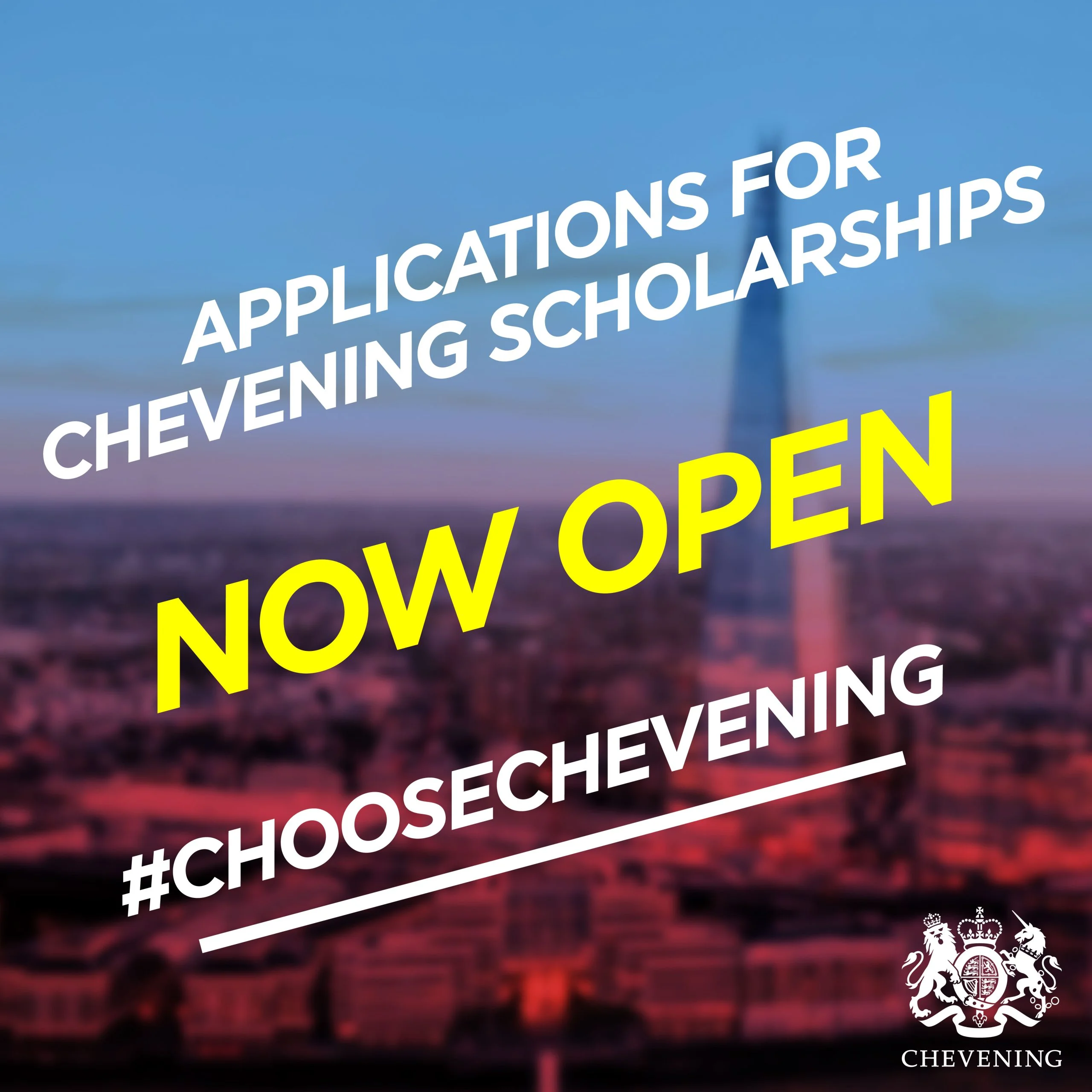
The Chevening Scholarship is a prestigious international scholarship program fully funded by the UK government. It is specifically designed to provide opportunities for outstanding individuals from around the world to pursue postgraduate studies in the United Kingdom. The program is named after the Chevening House in the UK, which is used for many of its events.
To be selected for a Chevening Scholarship, applicants must meet specific eligibility criteria and go through a competitive application and selection process. The eligibility criteria include:
- Being a citizen of a Chevening-eligible country.
- Having an undergraduate degree or equivalent work experience.
Once the eligibility is confirmed, applicants are evaluated based on their leadership qualities, academic achievements, and potential to contribute to their home country. The selection process involves multiple rounds of assessment, including written applications, interviews, and references from credible sources. Only the most exceptional candidates are chosen for the prestigious Chevening Scholarship.
Crafting an effective Chevening essay requires a thoughtful approach that begins with a deep understanding of the essay prompt. By brainstorming, outlining, highlighting achievements, and improving on grammar, flow, composition, and relevancy, applicants can create a compelling narrative that demonstrates their suitability for the scholarship. This strategic approach will increase their chances of becoming Chevening Scholars and pursuing their academic and leadership goals in the UK.
The provided hypothetical responses to the Chevening scholarship essay questions should not be used or referenced in your application, as doing so could lead to automatic disqualification. The purpose of these responses is to assist inexperienced scholarship applicants in effectively approaching the essay task.
BY ALL MEANS AVOID COPY AND PASTE IN YOUR ESSAY.
HYPOTHETICAL RESPONSE: I possess the qualities and experiences necessary to meet Chevening’s requirement of being a future leader or influencer in my home country. Throughout my academic and professional journey, I have consistently demonstrated leadership and influencing skills, which I intend to develop further during my time in the UK.
One significant example of my leadership ability is when I served as the president of a student organization during my undergraduate studies. In this role, I successfully led a team of diverse individuals toward a common goal. I organized events, managed budgets, and ensured effective communication among team members. Through this experience, I not only honed my organizational and managerial skills but also learned the importance of collaboration and teamwork in achieving objectives. I organized a symposium titled Life after Undergraduate Studies. This symposium recorded 1000 participants including the vice chancellor of the university and several guest speakers.
In my professional life, I have held a position as a project manager in a non-governmental organization focused on environmental conservation. During my tenure, I initiated a campaign to raise awareness about sustainable practices in our community. Through strategic planning and effective communication, I garnered support from local businesses, government agencies, and community members. This campaign resulted in a significant reduction in environmental degradation in our area. My ability to mobilize resources and inspire action illustrates my capacity to influence positive change.
Furthermore, my involvement in advocating for educational reform in my home country underscores my commitment to becoming a future influencer. I have actively participated in discussions with policymakers and educational institutions, presenting innovative ideas to improve the quality of education and access for underprivileged communities. My efforts have contributed to policy changes and the implementation of programs aimed at bridging educational disparities.
I intend to capitalize on the world-class education and networking opportunities Chevening offers to further enhance my leadership and influencing skills. I will pursue a Master’s degree in Public Policy, focusing on sustainable development and social equality, which are critical issues in my home country. This academic experience will provide me with the knowledge and expertise needed to address pressing challenges effectively.
In conclusion, my track record of leadership roles and influencing outcomes, coupled with my dedication to addressing pressing issues in my home country, makes me a strong candidate for Chevening’s mission of nurturing future leaders and influencers. My time in the UK will serve as a transformative experience, equipping me with the skills, knowledge, and network needed to make a lasting positive impact on my community and beyond.
ALSO READ: Call for Applications: Schwarzman Scholars Program in China 2024-25 | Fully Funded
NETWORKING QUESTION: Chevening is looking for individuals with strong professional relationship-building skills, who will engage with the Chevening community and influence and lead others in their chosen profession. Please explain how you build and maintain relationships in a professional capacity, using clear examples of how you currently do this, and outline how you hope to use these skills in the future. (minimum word count: 100 words; maximum word count: 500 words)
HYPOTHETICAL RESPONSE: Building and maintaining professional relationships has been an integral part of my career journey, and it is a cornerstone of effective leadership and influence. I have consistently demonstrated my ability to connect with individuals from diverse backgrounds and industries. Below, I provide clear examples of how I currently build and maintain professional relationships and how I plan to leverage these skills in the future, especially during my time in the UK through the Chevening program.
In my current role as a project manager at XXX, I have had the opportunity to work with cross-functional teams comprising members from various departments, each with distinct roles and responsibilities. To foster collaboration and ensure project success, I proactively initiate meetings, facilitate open communication channels, and actively listen to my team members’ ideas and concerns. By valuing their input and expertise, I have established trust and respect within the team, which has resulted in enhanced teamwork and project outcomes. These relationships are essential not only for project success but also for my personal and professional growth.
Furthermore, I engage in professional networking events and conferences within my industry. At these events, I approach professionals with a genuine curiosity about their work and experiences. I ask insightful questions and actively listen, seeking to understand their perspectives and challenges. By doing so, I have built a valuable network of industry experts and peers whom I can turn to for advice, collaboration, or knowledge sharing. One notable example is when I connected with [Industry Expert’s Name] at a conference. Our discussions eventually led to a collaborative research project that has since been published in a reputable industry journal.
Looking ahead, I aspire to use these relationship-building skills during my Chevening journey. In the UK, I plan to actively engage with the Chevening community, my fellow scholars, and faculty members at my chosen university. I intend to organize and participate in academic and professional networking events, creating an environment conducive to sharing knowledge and experiences. By fostering a sense of community and camaraderie, I hope to encourage meaningful interactions and collaborations among scholars from diverse backgrounds.
Moreover, the Chevening experience is an opportunity to expand my global network. I aim to connect with British professionals, entrepreneurs, and academics who can provide unique insights into their fields and contribute to my personal and professional growth. Through these interactions, I plan to bring back valuable knowledge and experiences to my home country, fostering international collaborations that can address pressing global challenges.
In conclusion, my ability to build and maintain professional relationships has been instrumental in my career growth thus far. I am excited about the prospect of further developing these skills during my Chevening journey. Through active engagement with the Chevening community, networking with professionals in the UK, and fostering international collaborations, I aim to use my relationship-building skills to influence and lead others in my chosen profession and make a positive impact on a global scale.
ALSO READ: The Rhodes Scholarship for outstanding young people from around the world to study at the University of Oxford
STUDY IN UK QUESTION: Outline why you have selected your chosen three university courses, and explain how this relates to your previous academic or professional experience and your plans for the future. Please enter new information and examples here and not duplicate the information you have entered on the work experience and education section of this form (minimum word count: 100 words, maximum word count: 500 words)
HYPOTHETICAL RESPONSE: I have meticulously selected my three university courses for the Chevening Scholarship with a clear vision of how each choice aligns with my previous academic and professional experiences and contributes to my plans.
My first choice is to study Public Policy at Oxford University. This is rooted in my deep-seated commitment to public service and policy advocacy. Throughout my career in xxx, I have actively engaged in policy analysis and contributed to the development of initiatives aimed at improving public services and addressing societal challenges. Oxford University’s rigorous curriculum and esteemed faculty members in the field of public policy make it the ideal place for me to deepen my understanding of policy formulation, implementation, and evaluation.
Oxford’s academic excellence will not only enhance my policy analysis skills but also provide me with a global perspective on effective governance. Armed with this knowledge, I aim to return to my home country and play a pivotal role in shaping policies that address pressing issues such as education reform, healthcare access, and poverty alleviation.
My second choice is to pursue a degree in Public Project Management at the University of Cambridge. This stems from my extensive experience in project management and my aspiration to contribute to efficient and impactful public projects. In my current role as a Project Manager at [Company Name], I have led cross-functional teams and overseen the successful execution of complex projects. However, I recognize the unique challenges that public projects present, including budget constraints and stakeholder engagement.
The University of Cambridge’s program is renowned for its emphasis on project management within the public sector. By acquiring advanced project management skills tailored to the public domain, I aim to bridge the gap between private and public project management practices. This knowledge will enable me to lead public projects that are not only cost-effective but also yield significant social benefits.
My third choice of the Public Engagement and Sustainability program at University College London reflects my passion for environmental conservation and community engagement. Over the years, I have been actively involved in environmental initiatives and community outreach programs. The intersection of public engagement and sustainability is crucial for addressing the global climate crisis and promoting responsible citizenship.
University College London’s program offers a comprehensive curriculum that combines sustainability studies with effective public engagement strategies. By enrolling in this program, I will gain a deeper understanding of sustainable practices and the means to engage communities in adopting them. This knowledge will be instrumental in my long-term career goal of advocating for sustainable policies, promoting eco-friendly practices, and fostering a culture of environmental responsibility in my home country.
In conclusion, my choice of these three university courses is a strategic step in my journey to becoming a global leader who can drive positive change in my home country. These programs will not only enrich my academic and professional knowledge but will also empower me to tackle complex issues related to public policy, project management, sustainability, and community engagement. Through the Chevening Scholarship, I aspire to return home with the expertise needed to make a lasting impact on the development and well-being of my community and nation.
ALSO READ: YALI RLC cohort 46 (Onsite) Selection Process and Criteria
CAREER PLANS QUESTION: Chevening is looking for individuals who have a clear post-study career plan. Please outline your immediate plans upon returning home and your longer term career goals. You may wish to consider how these relate to what the UK government is doing in your country. (minimum word count: 100 words, maximum word count: 500 words)
HYPOTHETICAL RESPONSE: My post-study career plan and long-term career goals are intricately connected to my aspirations to contribute to the development and prosperity of my home country. Upon completing my studies in the UK through the Chevening program, I have a clear vision of my immediate and longer-term career objectives.
Upon returning to my home country, I intend to actively apply the knowledge and skills I acquire during my studies in the UK to make an immediate impact. Given my background and career in the public sector, I aim to return to my current position or a higher-ranking role within my government agency. My immediate goal is to use the insights gained from my academic program to contribute to more effective and evidence-based policy formulation and implementation. I aim to be at the forefront of initiatives that address critical issues facing my country, such as healthcare reform and education enhancement.
I am committed to sharing the knowledge and experiences I gain in the UK with my colleagues and peers. This includes organizing workshops, seminars, and training sessions within my government agency to promote best practices and foster a culture of continuous learning. I plan to engage actively with local communities and civil society organizations. Through volunteering and collaborative projects, I want to apply my expertise to address social and environmental challenges, aligning with the UK government’s emphasis on sustainable development and community engagement.
Looking further into the future, my long-term career goals are shaped by a commitment to sustainable development, social progress, and the values promoted by the UK government in my home country. Over the long term, I aspire to take on leadership roles within my government’s policy-making bodies. I aim to play a pivotal role in shaping policies that address complex societal challenges, foster economic growth, and promote social inclusivity. I envision fostering international collaborations between my home country and the UK. Leveraging the networks I build during my Chevening journey, I will seek opportunities for knowledge exchange, joint research projects, and partnerships that benefit both nations.
I am passionate about education and its role in societal progress. Therefore, I plan to establish educational initiatives, scholarships, and mentorship programs that empower the next generation of leaders and scholars in my country. This aligns with the UK government’s commitment to global education and capacity-building. Long term, I aim to be a prominent advocate for sustainable practices, environmental conservation, and renewable energy solutions in my country. I will work towards aligning national policies with global sustainability goals, reflecting the UK government’s focus on climate action and environmental protection.
In conclusion, my post-study career plan and long-term career goals are driven by a strong commitment to making a meaningful impact in my home country. I intend to leverage the knowledge, skills, and networks gained during my Chevening-sponsored education in the UK to contribute to effective governance, sustainable development, and positive change. By aligning my aspirations with the values and goals of the UK government in my country, I aim to be a catalyst for progress and development in the years to come.
RELATED ARTICLES MORE FROM AUTHOR
Aig scholarships for master of public policy at the university of oxford for nigerians 2023, friedrich-ebert-stiftung (fes) scholarship programme 2023, call for applications: rotterdam young leaders scholarship to attend the one young world summit 2023 |fully-funded, call for applications: western union foundation scholarship, apply now: mastercard foundation scholarship at university of pretoria |fully-funded, apply now: mccall macbain scholarship in canada | fully funded, leave a reply cancel reply.
Save my name, email, and website in this browser for the next time I comment.
Latest article
Dietary Changes to Help Reduce Ulcerative Colitis Symptoms
How Exercise Can Boost Your Memory and Thinking Skills.
What Parents Need to Be Sure Their Teens Know about Sexually Transmitted Infections.
- Advertisement
- Privacy Policy
- Fully Funded Scholarships Await You
What Parents Need to Be Sure Their Teens Know about Sexually...
5 Chevening Scholarship interview questions and how to answer them

If you are an international student who aspires to study in the UK, you will have heard of the Chevening Scholarship. This prestigious international scholarship allows some of the brightest international students from eligible countries to pursue their master’s in the UK for free.
One factor that will influence your success in securing the scholarship is to ace your Chevening Scholarship interview. Preparing for any scholarship interview — especially for prestigious international scholarships such as Chevening — can be stressful and challenging if you are unsure what to expect or how to best answer the interviewer’s questions.
Fortunately, the Chevening website and YouTube are great places to search for tips and tricks from past Chevening scholars on how to answer the common questions that interviewers will ask during the interview process.
We draw on their advice for this list on acing your Chevening Scholarship interview:

The interview is an important part of the Chevening scholarship application process. Source: Niklas Halle’n/AFP
Top tips on acing the Chevening scholarship interview
1. “tell us about yourself.”.
Keanu Reeves famously said: “Sometimes simple things are the most difficult things to achieve.” Likewise, some of the most challenging questions to answer are straightforward ones.
For Argenis Toyo, a Chevening scholar from Venezuela, one of the first significant challenges of the interview process was when his interviewers asked him to describe himself. Toyo advises applicants to consider what sets them apart from others when presenting themselves to the interview panel.
“This is not a list of what you have done, this is about who you are and how that impacts your country,” he explains.
In Toyo’s case, his research into architectural technology allowed him to create a positive impact in communities by involving people in sustainable projects. In his interview, he highlighted his work on educating young students about new design tools.
2. “Tell us about your leadership experience.”
Kerry-Ann Harriot, a Chevening scholar from Jamaica, shared that she used the CAR method (Context, Action and Result) and storytelling approach in answering this question.
“My example was about leading the implementation of a platform as an answer to an organisational problem,” she explains. “I started about what my observation was, how did it impact the organisation, what I did, who I led and influenced decisions, and what the results were.”
In her YouTube video, she also provides a script on how she tackled this specific question. Click here to view it.
3. “What are your career goals?”
Most applicants who have researched the Chevening Scholarship know that this is a popular question that interviewers will ask during the interview. However, this question can still catch many applicants by surprise.
Sithabile Daka-Mungobe, a Chevening scholar from Zimbabwe, explained that the political situation in her home country was a barrier for her to set a specific career plan. She did not let that faze her and gave strong examples of how she was working towards her broader goals.
“Despite there being clear eligibility criteria for my long-term goal of being a judge in the higher courts, political interference makes it more of a fantasy than a reality,” she shares. “[I highlighted] my ability to give back to my community through various volunteer activities with UNICA-AfroEdge and other community-based organisations.”
4. “How will you engage with the Chevening community?”
A big part of the Chevening scholarship is the chance to join a vast alumni network . As Kuseme Iseh shares, you must show how you can contribute to this community as a Chevening alumnus.
“While answering this question, I highlighted how I was going to volunteer for the Chevening community and add value to every other Chevening scholar that I met. I talked about how I was going to network and build valuable relationships so we could come together to achieve a task in my field,” shares the Chevening scholar, who works as a Nigerian lawyer.
She also suggests that applicants emphasise how they can use the scholarship to network and give back to their local community.
5. “What is your backup plan?”
Laith Abdin, a Jordanian scholar, shares that this was the most challenging question he faced during his interview.
“As you can imagine, I was mentally focused on the exact opposite, and it took me a few seconds to make the switch,” he says.
While it may seem like a strange question, having a backup plan indicates the applicant’s strong commitment to their goals — a quality that Chevening seeks in their scholars. Abdin’s advice is to be genuine at whatever question that interviewers may ask during the interview.
Popular stories
From dentistry to public health: the indian student aiming for a world health organisation career.

Corporate jargon 101: The most common business speak words and phrases every fresh grad must know

It’s not business: 5 most in-demand careers in Canada

How to become the next Zendaya, Timothée Chalamet: 7 best acting schools with famous graduates

Chevening Scholarship aspirant? Here's a guide for the next application cycle
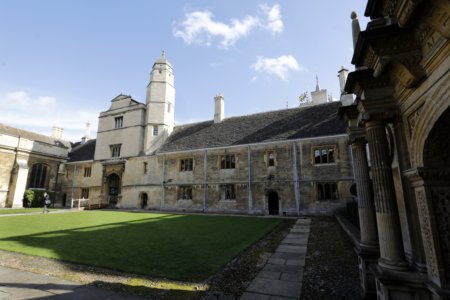
7 tips to ace your Chevening scholarship interview
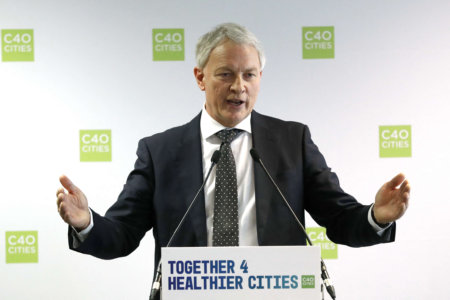
How to successfully apply for a Chevening Scholarship
Essay questions answer sample of Chevening scholarship, UK Government Scholarship

Are you looking for the questions answer of Chevening scholarship ? Here I share with you the essay question answers sample. When you go through the online application system for Chevening Scholarship, you will the face questions on Leadership and influence, Networking, Studying in the UK and career Plan. See below to get the questions answer.
How do you get 100% free scholarships?
The Chevening scholarship application has 5 steps namely-
- 1/5 – BACKGROUND
- 2/5 – ESSAY QUESTIONS
- 3/5 – APPLICATION INFORMATION
- 4/5 – TERMS & CONDITIONS
- 5/5 – SUBMIT APPLICATION
Scholarship opportunity in Canada for international students

In second step, you face following questions. Here the questions mentioned with sample answers.-
1. chevening is looking for individuals who will be future leaders or influencers in their home countries. explain how you meet this requirement, using clear examples of your own leadership and influencing skills to support your answer. (minimum word count: 100 words, maximum word count: 500 words).
As a disaster manager and Agriculturist I get the opportunity to organize programs, seminars, trainings where I became able to express my leadership skills as organizer. As professional I have to attend in field visits with labors, farmers where trainings or seminars or group discussion are held and my leadership role need to be demonstrate there. I have well management, leadership and operational competencies and considerable theoretical and practical knowledge on Project Management, Climate Change, Disaster Management, Agriculture Planning and Food Security, Emergency Response, Sustainable coastal livelihood, Physical and Social Survey Techniques (qualitative and quantitative), Geographic Information System (GIS), Report writing (qualitative and quantitative), Research methods etc.
Leadership skills persuade by surroundings environment and sometimes acquired by inheritance or closers. A leader achieves his goals by putting his intentions into actions with vision, perseverance and dedication. During university year I became member of cultural organizations and worked for organizing different programs successfully. During University time I decided to teach street children, but I did not have a finance to start it. So many times I tried to open my school, but I failed however my passion to achieve my goal did not finish. I searched ways to reach my goal. So I talked with my friend about idea and we visited teachers to persuade them about our plan and finally we opened our Education Training for street children.
Opportunity to study in America for Free (YES program )
Who owns leadership skills should dedicate himself to his work and should work hard, because dedication and hard work play a cornerstone for previous two characteristics to succeed as leader. Leaders are not the people to seek chances they always create chances for themselves to change their community, society and country toward good with their vision, perseverance and dedication to their work. As a young leader I believe that I have good accomplishments up to now. I am eager to give strength in my leadership skills through enrich my educational and professional skills. Through achieving the skills I want to serve my nations for the betterment of people.
2. Chevening is looking for individuals with strong professional relationship building skills, who will engage with the Chevening community and influence and lead others in their chosen profession. Please explain how you build and maintain relationships in a professional capacity, using clear examples of how you currently do this, and outline how you hope to use these skills in the future. (minimum word count: 100 words; maximum word count: 500 words)
Chevening scholarship will help me to meet people from different cultures. If I become one of Chevening awardee then I would build networking between Chevening alumni and my organization to find better solution in terms of environmental foreign policy. As environmental is a concern of all countries over the world. Surrounded by various experience in my life, has allow me meet with hundreds others from different country, culture, religion, ethnic, and professions. I am hoping to meet another hundreds or thousands of people from all around the world through Chevening scholarship program.
My experience in a non-profit organization has helped me to connect with broad networks. I have built networking with different donor organizations, local stake holders and different community people. By involving as an organizer of seminars, trainings, campaign etc I able to create a connection with expertize peoples. Therefore I have participated in several field visits and the most mentionable were visit for farmers in rural areas and slum people in urban areas. I had collected the information regarding there problem and presented the problems via my writings to concern authorities. I presented their problems through my writings in daily newspapers and want to create a strong network to solve out their problems successfully.
My networking skill is used equally for supporting my functional responsibility, personal development, gathering information that could help determine strategic action etc. However, as I advance in my career, I will allocate more effort to leverage my network to help me determine the strategic action. Because when my responsibility grows, the problem I need to solve and the result I need to deliver will need cooperation, information and resources from both people inside my network and outside my network. Therefore, in addition to network with the people inside my environment and client’s environment, I will use more time to extend my network wider to other areas that are not directly related to my profession.
Therefore, I would not only maintain my presence in events, but also, I would keep interaction using social media like Emails, LinkedIn, Facebook, Twitter and etc. I am committed and passionate to enrich my networking, experience and knowledge and transfer them to improve my nation and work for better of people.
3. Outline why you have selected your chosen three university courses, and explain how this relates to your previous academic or professional experience and your plans for the future. Please do not duplicate the information you have entered on the work experience and education section of this form (minimum word count: 100 words, maximum word count: 500 words)
I am a disaster manager and an agriculturist too and my expertize arenas make me more thoughtful about environmental issues. I am currently working as a Project Officer with Charity Foundation a national NGO and the projects here related with environmental issues, climate change and adaptation in agriculture sector etc.
During my Masters studies I became fascinated with issues of climate change that affect the livelihood of urban slum peoples. I have worked on five livelihood assets as defined in the Sustainable Livelihood Framework of the DFID and identified the climate change effects on the assets. During my undergraduate studies I worked on substantial alternative of chemical pesticides in controlling plant diseases through plant tissue culture, genetic engineering and biotechnological improvement. I have used bio-control agent and botanical extracts as biologically based and environmentally safe alternatives against seed borne and soil borne fungal pathogens. I have three publications and some of my papers are under review.
The courses, I have selected from famous UK universities are related with environment. Environmental changes are influencing frequent disaster and the management is necessary for reduction of fluency. My Master’s subject area is related with the course Environmental Change and Management and I selected the course to enrich myself more about the subject. My professional arena is related with project management and environmental engineering is a part of my responsibilities in working areas that is why I have selected the course Environmental Engineering and Project Management. Environment and International Development is one of demanding subject and my educational and professional expertise on environment motivated me to enrich it with International Development.
I look forward to see myself as an environmental specialist by enrich my knowledge and expertise.
4. Chevening is looking for individuals who have a clear post-study career plan. Please outline your immediate plans upon returning home and your longer term career goals. You may wish to consider how these relate to what the UK government is doing in your country. (minimum word count: 100 words, maximum word count: 500 words)
Among the UK priorities for my countries, however, the one that is suitable for my goal is Climate change and Environment. Bangladesh is a disaster prone country, climate change, sea level rising, temperature rising are keeping the country at more risk. Development is needed here in every aspect. I want to be a part in the development sectors here for the betterment of my country and poor people. By achieving knowledge I want to back in my country and would like to take part in development process of my country and contribute to the extended level. In Bangladesh, frequent disaster and their impact on agriculture are finally creating livelihood risk like unemployment, poverty, hunger, malnutrition, loss of food production, migration to city etc.
I want to work on the environmental and climate change issues in more extend after completing the MSc program, I have chosen. I will resume working with the Development sectors and research organizations or academic institutions as an environmental specialist. With my determination and invaluable experience in the UK, I am convinced that I will be able to distinguish myself from others and accomplish what I want to carry out in the future, ultimately able to make an impact to the development of Bangladesh.
Click here to apply for Chevening Scholarship
How to write an academic research proposal with sample
How to email a professor for research fund and scholarship
How to write an email Cover Letter to a professor for research and scholarship
Top Ten Renowned Full Funded Scholarships
Subscribe to our mailing list to get the new updates!
Best movie of bollywood three khan (shahrukh, salman, aamir), two exclusive reference letter sample see it now, related articles.

NGO Job Most Common interview questions & Answers? Must read

60 Must Read Job Interview Questions and How to Answer 2024

How to plan Study abroad from Bangladesh with scholarship
9 personal skills that can secure your job 2024.
Places on our 2024 summer school are filling fast. Don’t miss out. Enrol now to avoid disappointment
- Focus and Precision: How to Write Essays that Answer the Question

About the Author Stephanie Allen read Classics and English at St Hugh’s College, Oxford, and is currently researching a PhD in Early Modern Academic Drama at the University of Fribourg.
We’ve all been there. You’ve handed in an essay and you think it’s pretty great: it shows off all your best ideas, and contains points you’re sure no one else will have thought of.
You’re not totally convinced that what you’ve written is relevant to the title you were given – but it’s inventive, original and good. In fact, it might be better than anything that would have responded to the question. But your essay isn’t met with the lavish praise you expected. When it’s tossed back onto your desk, there are huge chunks scored through with red pen, crawling with annotations like little red fire ants: ‘IRRELEVANT’; ‘A bit of a tangent!’; ‘???’; and, right next to your best, most impressive killer point: ‘Right… so?’. The grade your teacher has scrawled at the end is nowhere near what your essay deserves. In fact, it’s pretty average. And the comment at the bottom reads something like, ‘Some good ideas, but you didn’t answer the question!’.

If this has ever happened to you (and it has happened to me, a lot), you’ll know how deeply frustrating it is – and how unfair it can seem. This might just be me, but the exhausting process of researching, having ideas, planning, writing and re-reading makes me steadily more attached to the ideas I have, and the things I’ve managed to put on the page. Each time I scroll back through what I’ve written, or planned, so far, I become steadily more convinced of its brilliance. What started off as a scribbled note in the margin, something extra to think about or to pop in if it could be made to fit the argument, sometimes comes to be backbone of a whole essay – so, when a tutor tells me my inspired paragraph about Ted Hughes’s interpretation of mythology isn’t relevant to my essay on Keats, I fail to see why. Or even if I can see why, the thought of taking it out is wrenching. Who cares if it’s a bit off-topic? It should make my essay stand out, if anything! And an examiner would probably be happy not to read yet another answer that makes exactly the same points. If you recognise yourself in the above, there are two crucial things to realise. The first is that something has to change: because doing well in high school exam or coursework essays is almost totally dependent on being able to pin down and organise lots of ideas so that an examiner can see that they convincingly answer a question. And it’s a real shame to work hard on something, have good ideas, and not get the marks you deserve. Writing a top essay is a very particular and actually quite simple challenge. It’s not actually that important how original you are, how compelling your writing is, how many ideas you get down, or how beautifully you can express yourself (though of course, all these things do have their rightful place). What you’re doing, essentially, is using a limited amount of time and knowledge to really answer a question. It sounds obvious, but a good essay should have the title or question as its focus the whole way through . It should answer it ten times over – in every single paragraph, with every fact or figure. Treat your reader (whether it’s your class teacher or an external examiner) like a child who can’t do any interpretive work of their own; imagine yourself leading them through your essay by the hand, pointing out that you’ve answered the question here , and here , and here. Now, this is all very well, I imagine you objecting, and much easier said than done. But never fear! Structuring an essay that knocks a question on the head is something you can learn to do in a couple of easy steps. In the next few hundred words, I’m going to share with you what I’ve learned through endless, mindless crossings-out, rewordings, rewritings and rethinkings.
Top tips and golden rules
I’ve lost count of the number of times I’ve been told to ‘write the question at the top of every new page’- but for some reason, that trick simply doesn’t work for me. If it doesn’t work for you either, use this three-part process to allow the question to structure your essay:
1) Work out exactly what you’re being asked
It sounds really obvious, but lots of students have trouble answering questions because they don’t take time to figure out exactly what they’re expected to do – instead, they skim-read and then write the essay they want to write. Sussing out a question is a two-part process, and the first part is easy. It means looking at the directions the question provides as to what sort of essay you’re going to write. I call these ‘command phrases’ and will go into more detail about what they mean below. The second part involves identifying key words and phrases.
2) Be as explicit as possible
Use forceful, persuasive language to show how the points you’ve made do answer the question. My main focus so far has been on tangential or irrelevant material – but many students lose marks even though they make great points, because they don’t quite impress how relevant those points are. Again, I’ll talk about how you can do this below.
3) Be brutally honest with yourself about whether a point is relevant before you write it.
It doesn’t matter how impressive, original or interesting it is. It doesn’t matter if you’re panicking, and you can’t think of any points that do answer the question. If a point isn’t relevant, don’t bother with it. It’s a waste of time, and might actually work against you- if you put tangential material in an essay, your reader will struggle to follow the thread of your argument, and lose focus on your really good points.
Put it into action: Step One

Let’s imagine you’re writing an English essay about the role and importance of the three witches in Macbeth . You’re thinking about the different ways in which Shakespeare imagines and presents the witches, how they influence the action of the tragedy, and perhaps the extent to which we’re supposed to believe in them (stay with me – you don’t have to know a single thing about Shakespeare or Macbeth to understand this bit!). Now, you’ll probably have a few good ideas on this topic – and whatever essay you write, you’ll most likely use much of the same material. However, the detail of the phrasing of the question will significantly affect the way you write your essay. You would draw on similar material to address the following questions: Discuss Shakespeare’s representation of the three witches in Macbeth . How does Shakespeare figure the supernatural in Macbeth ? To what extent are the three witches responsible for Macbeth’s tragic downfall? Evaluate the importance of the three witches in bringing about Macbeth’s ruin. Are we supposed to believe in the three witches in Macbeth ? “Within Macbeth ’s representation of the witches, there is profound ambiguity about the actual significance and power of their malevolent intervention” (Stephen Greenblatt). Discuss. I’ve organised the examples into three groups, exemplifying the different types of questions you might have to answer in an exam. The first group are pretty open-ended: ‘discuss’- and ‘how’-questions leave you room to set the scope of the essay. You can decide what the focus should be. Beware, though – this doesn’t mean you don’t need a sturdy structure, or a clear argument, both of which should always be present in an essay. The second group are asking you to evaluate, constructing an argument that decides whether, and how far something is true. Good examples of hypotheses (which your essay would set out to prove) for these questions are:
- The witches are the most important cause of tragic action in Macbeth.
- The witches are partially, but not entirely responsible for Macbeth’s downfall, alongside Macbeth’s unbridled ambition, and that of his wife.
- We are not supposed to believe the witches: they are a product of Macbeth’s psyche, and his downfall is his own doing.
- The witches’ role in Macbeth’s downfall is deliberately unclear. Their claim to reality is shaky – finally, their ambiguity is part of an uncertain tragic universe and the great illusion of the theatre. (N.B. It’s fine to conclude that a question can’t be answered in black and white, certain terms – as long as you have a firm structure, and keep referring back to it throughout the essay).
The final question asks you to respond to a quotation. Students tend to find these sorts of questions the most difficult to answer, but once you’ve got the hang of them I think the title does most of the work for you – often implicitly providing you with a structure for your essay. The first step is breaking down the quotation into its constituent parts- the different things it says. I use brackets: ( Within Macbeth ’s representation of the witches, ) ( there is profound ambiguity ) about the ( actual significance ) ( and power ) of ( their malevolent intervention ) Examiners have a nasty habit of picking the most bewildering and terrifying-sounding quotations: but once you break them down, they’re often asking for something very simple. This quotation, for example, is asking exactly the same thing as the other questions. The trick here is making sure you respond to all the different parts. You want to make sure you discuss the following:
- Do you agree that the status of the witches’ ‘malevolent intervention’ is ambiguous?
- What is its significance?
- How powerful is it?
Step Two: Plan

Having worked out exactly what the question is asking, write out a plan (which should be very detailed in a coursework essay, but doesn’t have to be more than a few lines long in an exam context) of the material you’ll use in each paragraph. Make sure your plan contains a sentence at the end of each point about how that point will answer the question. A point from my plan for one of the topics above might look something like this:
To what extent are we supposed to believe in the three witches in Macbeth ? Hypothesis: The witches’ role in Macbeth’s downfall is deliberately unclear. Their claim to reality is uncertain – finally, they’re part of an uncertain tragic universe and the great illusion of the theatre. Para.1: Context At the time Shakespeare wrote Macbeth , there were many examples of people being burned or drowned as witches There were also people who claimed to be able to exorcise evil demons from people who were ‘possessed’. Catholic Christianity leaves much room for the supernatural to exist This suggests that Shakespeare’s contemporary audience might, more readily than a modern one, have believed that witches were a real phenomenon and did exist.
My final sentence (highlighted in red) shows how the material discussed in the paragraph answers the question. Writing this out at the planning stage, in addition to clarifying your ideas, is a great test of whether a point is relevant: if you struggle to write the sentence, and make the connection to the question and larger argument, you might have gone off-topic.
Step Three: Paragraph beginnings and endings

The final step to making sure you pick up all the possible marks for ‘answering the question’ in an essay is ensuring that you make it explicit how your material does so. This bit relies upon getting the beginnings and endings of paragraphs just right. To reiterate what I said above, treat your reader like a child: tell them what you’re going to say; tell them how it answers the question; say it, and then tell them how you’ve answered the question. This need not feel clumsy, awkward or repetitive. The first sentence of each new paragraph or point should, without giving too much of your conclusion away, establish what you’re going to discuss, and how it answers the question. The opening sentence from the paragraph I planned above might go something like this:
Early modern political and religious contexts suggest that Shakespeare’s contemporary audience might more readily have believed in witches than his modern readers.
The sentence establishes that I’m going to discuss Jacobean religion and witch-burnings, and also what I’m going to use those contexts to show. I’d then slot in all my facts and examples in the middle of the paragraph. The final sentence (or few sentences) should be strong and decisive, making a clear connection to the question you’ve been asked:
Contemporary suspicion that witches did exist, testified to by witch-hunts and exorcisms, is crucial to our understanding of the witches in Macbeth. To the early modern consciousness, witches were a distinctly real and dangerous possibility – and the witches in the play would have seemed all-the-more potent and terrifying as a result.
Step Four: Practice makes perfect
The best way to get really good at making sure you always ‘answer the question’ is to write essay plans rather than whole pieces. Set aside a few hours, choose a couple of essay questions from past papers, and for each:
- Write a hypothesis
- Write a rough plan of what each paragraph will contain
- Write out the first and last sentence of each paragraph
You can get your teacher, or a friend, to look through your plans and give you feedback . If you follow this advice, fingers crossed, next time you hand in an essay, it’ll be free from red-inked comments about irrelevance, and instead showered with praise for the precision with which you handled the topic, and how intently you focused on answering the question. It can seem depressing when your perfect question is just a minor tangent from the question you were actually asked, but trust me – high praise and good marks are all found in answering the question in front of you, not the one you would have liked to see. Teachers do choose the questions they set you with some care, after all; chances are the question you were set is the more illuminating and rewarding one as well.
Image credits: banner ; Keats ; Macbeth ; James I ; witches .
Comments are closed.

- Application
Where did I go wrong? Reading Committee feedback for applicants
- Facebook facebook
- Twitter twitter
- Linkedin linkedin
- Whatsapp whatsapp
- Facebook facebook (opens in a new window)
- Twitter twitter (opens in a new window)
- Linkedin linkedin (opens in a new window)
- Whatsapp whatsapp (opens in a new window)
As Chevening Scholarship results are announced, you may find that you have not received the news you were hoping for, and in this case will no doubt wonder where you might have gone wrong in your application – after all, you’ll want to review your application ahead of reapplying with even stronger essays when applications reopen soon!
Chevening uses independent Reading Committees to assess all eligible applications, and this year, they assessed over 53,000 eligible Chevening Scholarship applications for 2020/2021 intake. Based on their collective feedback, we have highlighted some of the most common reasons applications were not scored as highly as they could have been, and what applicants can do to improve their essays for the future.
Leadership and influence
Chevening is looking for individuals who will be future leaders or influencers in their home countries. Explain how you meet this requirement, using clear examples of your own leadership and influencing skills to support your answer.
- The best scoring applicants demonstrated clear examples of leadership and influencing with concrete results.
Weaknesses:
- Very few applicants were able to combine successful leadership qualities with evidence.
- Some applicants focussed on leadership examples from their early academic experiences, even their school experiences, rather than examples from their recent or current professional experience which may have provided more relevant examples of leadership ability.
- A significant number seemed to have assumed that occupying a particular position or role was in itself sufficient to demonstrate leadership skills. Thus, detailed instancing of how influence was successfully gained and deployed, and the beneficial outcomes of this, was fairly rare.
- The most common error is students continuing to define leadership rather than provide examples of their traits and linking them to the degree/post-study work plans.
General recommendations:
- Taking more of a STAR (situation, task, action, result) approach may have helped to refine these responses.
- Applicants should focus less on the collective “we” and “team” in this answer and place greater emphasis on their individual contribution, to achieve a higher score.
- Examples required more focus in terms of exactly how they led and, more notably, what were the results of their leadership and how did that have a long-term impact on their professional development.
Chevening is looking for individuals with strong professional relationship-building skills, who will engage with the Chevening community and influence and lead others in their chosen profession. Please explain how you build and maintain relationships in a professional capacity, using clear examples of how you currently do this, and outline how you hope to use these skills in the future.
- Strong applicants in this section used specific examples of their own networks, describing unique and diverse ways of maintaining networks, and discussed how they facilitate networking.
- Many applicants scored ‘good’ as they could clearly evidence networking skills, and even the start of building networks within the current Chevening community, but few expanded on this.
- Merely joining a social media network is relatively straightforward and quick to organise, and probably not the strongest example of relationship building skills; few applications demonstrated in specific detail how and why creating and joining these networks had proved beneficial.
- Many of the applicants found it difficult to connect their notions of networking with clear examples of using them at work. Answers were often generic with relationships and collaboration with direct and indirect colleagues discussed, but not expanded upon to clearly show how these relationships would help the individual in the future.
Studying in the UK
Outline why you have selected your chosen three university courses, and explain how this relates to your previous academic or professional experience and your plans for the future. Please do not duplicate the information you have entered on the work experience and education section of this form
- The strongest answers had a clear focus on study outcomes with evidence of research at institution and course level.
- The applicants who answered this question best did so by having distinct paragraphs discussing their courses.
- Applicants frequently did not specify their chosen universities or demonstrate an awareness of key details from within their fields.
- Applicants who had applied for three very diverse course subjects did not inspire confidence in their research into courses and were frequently unable to give clear and coherent reasons for these choices.
- While many showed a cursory or better than cursory knowledge of their chosen course and university, often the detail given on this read like a cut-and-paste from university promotional material rather than real engagement with subject or course detail.
Career Plan
Chevening is looking for individuals who have a clear post-study career plan. Please outline your immediate plans upon returning home and your longer term career goals. You may wish to consider how these relate to what the UK government is doing in your country.
- The strongest responses tended to be based on an outline of specific, concrete goals, which usually therefore seemed more convincing and achievable.
- Applicants often listed future aims in relation to their careers, and some explored realistic next steps in depth. Yet most did not give a strong rationale, which made a potential clear career path unconvincing.
- Many applicants illustrated a desire to do a PhD in the post study section. This is ambitious and realistic, but wasn’t always a convincing career goal on its own. That is to say, it needed to be backed up with reasons why they wanted to pursue research work and how it plays a part in their longer-term ambitions.
- Career plans were too often poorly developed and it was not possible to discern how a Chevening Scholarship would be of benefit.
Related news

Application advice
To help you when applying for Chevening, we’ve collated some of our independent reading committees best feedback and advice.

Chevening interview tips from scholars
Chevening interviews will soon begin around the world, and we wanted to give you some tips. Who better to ask than those who have been there, done that, and got the scholarship?

My Chevening journey: fourth time’s the charm
I vividly remember during my early years when my mother would say to me, ‘When life throws lemons at you, throw them back and demand oranges if that is what you want.’ She repeatedly said those words, which then birthed a fighting spirit within me. That is the same spirit that saw me apply for […]

IMAGES
VIDEO
COMMENTS
State this briefly and do the same for the next 4 questions. One of the Chevening events specifically for scholars: Leadership skill workshop with business pitching and social entrepreneurship as the theme. Networking. I would say that the networking question was a bit difficult for me to elaborate.
Navigating the Chevening essay questions requires a thoughtful approach that showcases your unique qualities, aspirations, and commitment to positive change. By addressing each question's specific focus and providing well-structured responses, you can present a compelling case for why you are an ideal candidate for the Chevening scholarship.
31 August 2023. We held two Q&A sessions on our Instagram and Facebook channels last week to answer your questions about the Chevening Application process. As we were not able to answer every question in the time that we had (we received over 500!), here is our summary of the most common questions that came up, and our answers to them.
As a part of my Chevening video series, here I talk about the tips in answering the 4 Chevening essay! Don't forget to write down some of these valuable tips...
Start by describing the Situation, outlining the issue, the Task involved, and the potential consequences of inaction. Proceed to detail your Action, explaining how you approached the situation ...
Ensure that you cover the bases in each of your essays, mentioning the most important elements. Your essays have to be truthful, concise, and well-written. Ensure that you tell a story when writing your essays, you can add bullet points to list achievements and highlight career goals however there should be a flow.
Essay 1: Leadership and Influence Question. Chevening is looking for individuals that will be future leaders or influencers in their home countries. Explain how you meet this requirement, using clear examples of your own leadership and influencing skills to support your answer.
Make sure you tailor your answers to the question. For your application to be deemed outstanding, make sure you clearly link your chosen course of study to your previous experiences and future vision. All Chevening Applicants need to demonstrate leadership, influencing, and relationship-building skills.
Questions with Sample Answers for Chevening Exams. 1- Chevening seeks individuals who can become leaders or influencers in their home countries. Demonstrate how you can meet this requirement by providing specific examples of your ability to influence others and lead others toward your answer (minimum word count 100 words; maximum word count 500 ...
This is a webinar recording. I was a panellist at the Network For Media & PR Women where Kenyan Chevening scholars and Alumni discussed how to approach and w...
In a nutshell, less is more. Make it Count: All four questions on the Chevening application have a word limit of 500. It's not too less, not too much; it's just right. Make sure that you use the available word limit to the best of your ability! Every single sentence should add some value to you and your application.
As with all other applications, do not leave anything until the eleventh hour. The online application system can slow down badly as the deadline approaches, so try to get things sorted well ahead of time. This year, the deadline is 1 November 2022. If you need more guidance, I'd suggest you keep an eye out for Chevening workshops.
5. Career Plan Question. To make it easier to answer this question, break it up into three parts: Your immediate, five-year and. ten-year career goals. Know where you want to be and say so. This is where you get to showcase your goals and dreams and how you hope to achieve them in a logical and tangible manner.
Written By: Shaher Hamdan, Reviewed By: Dr. Marwa Hamdan. Tips for Chevening Essay Questions. There are a total of 4 essays, each should be between 50-500 words; 1) leadership essay. 2) Networking skills essay. 3) Why do you want to pursue your studies in the UK essay. 4) Future career plan essay. Reference letters.
I often get asked how I got the Chevening Scholarship. Instead of answering the same questions over and over again, I have decided to write a series of blog posts. In this blog post, instead of giving you Chevening application tips, I will share my Chevening application journey, mainly covering: how I wrote my essay and how I answered the interview questions. I hope that what I share here will ...
Application questions word count. Applicants must meet the minimum word count in the essay questions. If the minimum word count is not met, your application will be deemed ineligible. Repetition. Applicants should not repeat answers to any of the essay questions, and should enter new and original answers for each of the four questions.
Only the most exceptional candidates are chosen for the prestigious Chevening Scholarship. Crafting an effective Chevening essay requires a thoughtful approach that begins with a deep understanding of the essay prompt. By brainstorming, outlining, highlighting achievements, and improving on grammar, flow, composition, and relevancy, applicants ...
Top tips on acing the Chevening scholarship interview. 1. "Tell us about yourself.". Keanu Reeves famously said: "Sometimes simple things are the most difficult things to achieve.". Likewise, some of the most challenging questions to answer are straightforward ones. For Argenis Toyo, a Chevening scholar from Venezuela, one of the first ...
As a chevening scholar 2017/2018, i want to share my personal essay. Hopefully, it will help you to give another perspective why this essay could allow me to become cheveners. Leadership & Influence Question. I believe that leadership is one of my strongest qualities as I've had times where I needed it for survival.
Here the questions mentioned with sample answers.-. 1. Chevening is looking for individuals who will be future leaders or influencers in their home countries. Explain how you meet this requirement, using clear examples of your own leadership and influencing skills to support your answer. (minimum word count: 100 words, maximum word count: 500 ...
2) Be as explicit as possible. Use forceful, persuasive language to show how the points you've made do answer the question. My main focus so far has been on tangential or irrelevant material - but many students lose marks even though they make great points, because they don't quite impress how relevant those points are.
Please do not duplicate the information you have entered on the work experience and education section of this form . Strengths: The strongest answers had a clear focus on study outcomes with evidence of research at institution and course level. The applicants who answered this question best did so by having distinct paragraphs discussing their ...
prompt, they often find that it answers many of their questions. When you read the assignment prompt, you should do the following: • Look for action verbs. Verbs like analyze, compare, discuss, explain, make an argument, propose a solution, trace, or research can help you understand what you're being asked to do with an assignment.